
Central Asia Adventure: Astana to Ashgabat Itinerary
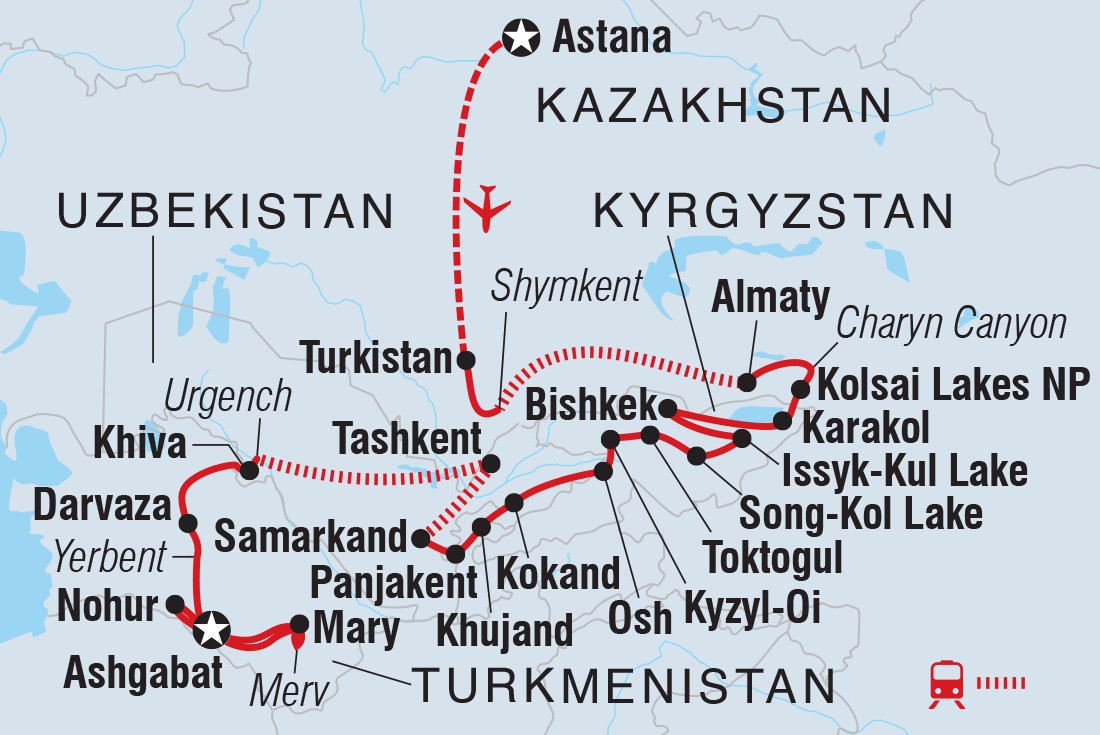


Salemetsiz be! Welcome to Kazakhstan. Your adventure begins in Astana with a welcome meeting at 6 pm at your hotel. Astana was purpose-built to become the capital city of Kazakhstan in 1997 and is home to meticulously planned city streets and architecture. The modern metropolis was designed by leading Japanese architect Kisho Kurokawa, who won first prize in a competition against other world-renowned architects. Now, it’s one of the youngest cities in Central Asia. If you arrive early, maybe stroll along the Astana waterfront or go shopping in the world’s largest tent at the Khan Shatyr Entertainment Centre. Tonight, join your leader and group for dinner in town for your first authentic Kazakh food experience.
This morning, join your leader for a city tour around some of the most impressive designs of the new city. Visit Bayterek tower, then stroll down Nur Boulevard to Khan Shatyr – another city landmark in the shape of a giant transparent tent. Visit Nur-Astana Mosque – with its capacity of 5000 worshippers inside and an additional 2000 outside, it’s one of the largest mosques in Central Asia. Then, you'll stop at the Palace of Peace & Reconciliation – a pyramid-shaped conference hall considered Astana's symbolic centre. This afternoon, why not find some horse meat dishes or plov (a popular rice dish with chunks of lamb, onions and carrots) for lunch. After, you’ll met back up with your group and visit a renowned local jeweller and his workshop to learn about his craft.
This morning, take a flight to the historic centre of Kazakhstan, Turkistan – home to more relics and cultural sites than any other place in the country. When you arrive, visit the new Caravan Serai – a complex recently built to model ancient Silk Road trade centres, giving visitors a taste of what life was once like here. With your free time in the late afternoon, you can see the Yasawi Mausoleum, illuminated with vivid colours and patterned exteriors.
Head out on a city tour this morning, starting with a visit to Khoja Ahmed Yasawi Mausoleum – Kazakhstan’s most iconic building. Built by Tamerlane, it’s said that three visits here are equal to one visit to Mecca. As it’s a religious site, it’s recommended that women wear a headscarf when entering. On the grounds, you'll find a rose garden, monuments, an archaeological museum and a mosque. Leaving the mausoleum, jump in your private transport to Shymkent, stopping at the ancient settlement of Otrar on the way. First excavated in 1969, its history dates back to the first century AD, with remnants of palaces, mosques and bathhouses that can still be seen today. This is also where Genghis Khan's army is said to have fought when the Mongols first invaded Central Asia. Board your overnight train in the evening.
Pulling into Alamaty this morning, hop off the train and head out to find some breakfast. Today, you’ll be going on a daytrip to Lake Issyk and Turgen Gorge. Stop at the Issyk Museum – an archaeological reserve dedicated to Kazakh history and Scythian culture (an ancient nomadic people who were particularly skilled in horseback warfare). Continue to Ile-Alatau National Park, where peaceful Lake Issyk sits in the foothills of the surrounding mountains. Relax and refresh on the lakeshore of this stunning spot before carrying on to Turgen Gorge, where a short hike will bring you to a waterfall. On the way back to Almaty, stop by a winery, where you’ll meet with a local craft winemaker and sample some raw wine, craft cheese and tuck into a hearty lunch.
Today, you’ll take a city tour of Almaty with a local guide. This former capital of Kazakhstan now has a completely different vibrancy to Astana, with its wide tree-lined streets, numerous parks and the view of the snow-capped mountains. Visit Central Square and the colourful Zenkoff Cathedral in Panfilov Park, dedicated to the 28 guardsmen who died defending Moscow against German tanks in WWII. Check out the fascinating Museum of Kazakh Musical Instruments, which features a great collection of ancient relics. Finally, visit Zelenyi Bazaar and experience the vibrant market scene before returning to the hotel to rest and recharge.
This morning, drive to Saty Village, stopping at the spectacular Charyn Canyon along the way. The richly coloured canyon carves a path through the surrounding landscape, with vivid tones of oranges and browns shifting and changing as the sun travels across the sky. Enjoy some time here to marvel at the natural wonder and grab some photos before continuing to Saty Village, where you’ll check into your homestay and experience a taste of local life in the Tien Shan Mountain Range.
This morning, visit Kolsay Lakes, also known as ‘the blue necklace’ for the clear blue waters framed by the mountains. If there’s time, you’ll take a hike to the lesser-known Kaindy Lake – a turquoise lake with a ‘submerged forest’ protruding from the water. Amazingly, the lake was created by an earthquake in 1911 which caused a limestone landslide, creating a natural dam in the forest. As time went on, the dam filled with water and the trees were covered, leaving just their trunks standing in the centre. Enjoy a picnic lunch, then head over the border to Kyrgyzstan, where you’ll continue your journey to Karakol.
This morning you’ll head out on a city tour of Karakol – once a small Russian military post, then a bustling soviet state, this town is bursting with history. Visit the Dungan Mosque – built in 1910, this colourful mosque was created without the use of a single nail. Instead, the structure was built using special cutting and groove techniques. You’ll also explore the Holy Trinity Orthodox Cathedral and a local market. Then, head out of the city to see the Jety Oguz, also known as Seven Bull Valley, where your leader will take you on a forest hike to a waterfall with panoramic views. Return to Karakol for another restful night.
Today you’ll have a full day's drive to Bishkek, which sits along the northern shore of Issyk Kul – the second largest alpine lake in the world after Lake Titicaca in South America. The views of the landscape are not to be missed, especially your first glimpse of Issyk Kul, surrounded by snow-capped mountains. Along the way, you'll stop at Cholpan Ata to visit a petroglyph's site. Then, take a short boat ride out onto the huge alpine lake to really soak up the beauty of these shimmering waters. In Bishkek, you have a free night, where you might want to head to a final dinner with your group and toast to an amazing adventure.
Today is a free day in Bishkek until your second welcome meeting at 6 pm tonight. In your free time, maybe walk through one of the local gardens or head out in search of some samsa (pastry pockets filled with meat and vegetables). After the meeting, why not grab dinner with your new group and get to know each other.
This morning, join your local leader on a guided city tour that showcases the various stages of Bishkek’s history. Visit the Ala-Too Square, once known as Lenin Square, and learn about the towering statue depicting folkloric hero Manas. Then, continue to Dubovy Park. Here, you’ll wander the open-air galleries, then explore the century-old oaks along Freedom Avenue. In the afternoon, you'll have some free time to further explore Bishkek at your own pace – maybe visit the Osh Market and wander through the stalls selling spices, fruits, clothes and carpets.
This morning, watch the beautiful landscape change as you drive to Kyrgyzstan. Along the way, stop at Burana Tower – a minaret that’s the most visible remnant of the ancient city of Balasagun. Then, continue to Don Aryk, where you’ll meet a local Kyrgyz family and sit down for a home-cooked lunch. After, continue to today’s destination – Issyk-Kul Lake. At 170 km long and 70 m wide, the Issyk-Kul Lake is the second-largest alpine lake in the world. Your yurt camp for tonight is set up along the south shore of the lake where you'll get a fantastic view of the snow-capped mountains setting behind the lake. Made of felt and tarpaulins on a round frame, yurts are the traditional dwellings of the Kyrgyz people, and this will be your 'settlement' for today and tomorrow.
After breakfast, you’ll head out to Kyzyl Tuu – known for yurt making. Almost every family here is a yurt maker, and the village is known far beyond Kyrgyzstan. Visit an artisan family who’ll teach you about their traditional yurts. With a special workshop, you’ll learn the basics of how these nomadic dwellings have been manufactured and how they play an important role in the community here. The rest of the afternoon is then free for you to explore at your own pace – maybe relax at your yurt camp, jump into the lake or set off on a short hike.
Travel to Song-Kol Lake this morning. This alpine is considered sacred to many Kyrgyz people and one of the best summer pastures for nomadic herders. On the way, stop at Kochkor to visit the local market and a women's felt co-op. The landscape today will change depending on the season, but it is sure to be beautiful no matter when you travel. In the summer, you might see nomadic herdsmen and their families watching over goats, sheep and horses. When you arrive later today, spend some time exploring the surroundings at your own pace. Tonight, fall asleep in yurts set up along the shore.
Travel along gravel roads to the tiny village of Kyzyl-Oi after breakfast. Today is a bit of a long travel day, so it's a good idea to get stuck into your book or favourite podcasts. On the way, pass large coal deposits and travel along the Kokomeren River, which feeds into the Syr Darya. Then, stop for a picnic lunch on the banks of the river and maybe use your free time to explore the village when you arrive. Tonight, learn how the locals cook their favourite snack of boorsok.
Get ready for a full day of driving though beautiful landscapes. As you cross the Suusamyr Valley (a high steppe plateau situated at around 2200 m above sea level) take in the mountainous surroundings, often dotted with yurts. Then, travel along the Chychkan River that cuts through the Tien Shan Mountain Range. Stop here for a while and soak up the beautiful scenery before continuing to Toktogul – a city in Jalal-Abad Region of Kyrgyzstan, named after a popular poet and musician from the region, Toktogul Satilganov. Later, you’ll arrive at tonight’s accommodation, which is part of the local community-based tourism network in Toktogul.
After breakfast, travel to Osh – the second-largest city in Kyrgystan. Located in the Fergana Valley in the south of the country, Osh is often referred to as the Capital of the South and is the oldest city in the country. Along the way, stop at Uzgen – an ancient trading town and handicrafts centre along the Silk Road. Although much of the ancient city has been destroyed, the three surviving mosques remain important examples of medieval Central Asian architecture. When you arrive in Osh this afternoon, the rest of the day is free for you to explore at your own pace.
Rise and shine early for a visit to the only UNESCO World Heritage site in Kyrgyzstan – the Sulaiman-Too Sacred Mountain. For centuries, Silk Road travellers have sought out the mountain's caves and petroglyphs, believing they’d be blessed with longevity and healthy children. Visit the National Historical and Archaeological Museum Complex. In the afternoon, enjoy some free time in Osh. Maybe visit the Jayma Bazaar, where you might pick up an interesting souvenir or two, or maybe take a self-guided tour of the remnants of Osh's Soviet past with a walk to the giant Lenin statue in the city square.
This morning, cross the border to Margilan in Uzbekistan – a city along the Silk Road that’s been at the centre of Uzbekistan’s silk production since the 11th century. When you arrive, visit a silk weaving factory and the ikat-silk weavers of Margilan. Here, you can wander through the markets and workshops and learn about every step of the silk production process. Then, meet a potter at one of Rishton’s ceramics workshops. According to legend, ceramic production originated in Rishton in the 9th century when the city became a transit point on the Silk Road. Sit down to lunch at the potter’s home and learn about this ancient craft before travelling to Kokand. The rest of the afternoon is free for you to explore at your own pace.
In the cool of the morning, discover the Khudayar Khan Palace Museum – the palace of the last Khan of Kokand Khanate. The palace, constructed in the late 19th century, is known for its blue, green and yellow tiles on the facade of the building and ornate interiors. Then, enjoy an afternoon free to explore Kokand at your own pace. Maybe see the Friday Mosque, wander through the bustling bazaars or visit the Royal Cemetery. Tonight, maybe find a local restaurant and head out for dinner with your fellow travellers.
Cross the border into Tajikistan this morning. Then, continue to Khujand. Known as Alexandria Eskhata (Alexandria the Furthest) and believed to be founded by Alexander the Great, Khujand is one of the oldest cities in Central Asia. When you arrive, the rest of the day is free for you to explore the city at your own pace. Maybe wander around the evening bazaar and barter a good price on fruits and other local produce. Across the market is Jami Mosque from 16th century. If time allows, maybe visit the History Museum or Khujand Fortification.
This morning, start your journey to Panjakent – once the capital of ancient Sogdiana country on the Silk Road. Today is a bit of a long travel day, so it's a good idea to get stuck into your book or favourite podcasts. On the way, visit Marquzor Lakes – a chain of alpine lakes and local villages. Have lunch with a local Tajik family in the village before continuing to Penjikent. When you arrive this afternoon, explore the ancient city walls and ruins. Archaeologists working on the site have recently discovered more than fifty rooms here! Visit the tiny museum and wander through the foothills of the city walls before enjoying a free night to explore at your own pace.
After breakfast, take the bus across the border back into Uzbekistan. When you arrive, take a bus to Samarkand. This city is located at the very centre of the ancient Silk Road – a vast network of land and sea trade routes, which facilitated the exchange of goods like silk and spices from the second century to the mid-15th century. Later today, follow your leader on a short city orientation walk and see the historic mosques and bustling bazaars. Tonight, maybe head out for dinner with your group – your local leader will have the best recommendations of where to eat!
This morning, visit central square called the Registan, which features mosques and mausoleums that are true pinnacles of Islamic architecture. Then, continue to Guri-Amir, where Tamerlane is buried, and then the enormous Bibi-Khanum Mosque. Visit Shak-i-Zinda – a necropolis that features a series of blue-tiled mausoleums. This sacred site has monuments from the 14th to 19th century, reflecting the development of the monumental art and architecture of the Timurid dynasty onwards. Tonight, you’ll learn the secrets of plov cuisine during a cooking demonstration with a local family.
This morning, take the train back to Tashkent. As the largest city in Central Asia, Tashkent blends Russian and Uzbek style, with grand mosques that sit alongside modern highways and Soviet monuments. Enjoy a free afternoon – maybe visit the State Museum of History of Uzbekistan or wander through the Art Gallery of Uzbekistan. Tonight, why not celebrate this great adventure with an optional farewell dinner!
Today is a free day to relax and recharge in Tashkent. Maybe explore any of the mosques you haven’t seen yet or take a walk among the contemporary architecture. Tonight, you’ll have a third welcome meeting at 6 pm to meet the new travellers joining you on the last leg of your epic adventure. After your meeting, maybe join your group for dinner at a local restaurant – your local leader will have the best recommendations!
This morning, embark on a city tour to explore Tashkent. Visit the Amir Timur Square in the city’s centre and wander the bustling Chorsu Bazaar. An impressive dome tops the main building here and the market sells everything you could imagine. Explore the decorated metro stations, which were only allowed to be photographed from 2018, and the Khast Imom Complex, which houses one of the oldest copies of Qur'an. Have some free time in the afternoon and maybe stock some snacks for your overnight train tonight.
Arrive in Khiva mid-morning – many global powers have laid claim to this city over the centuries, from Khans to Silk Road traders and the Soviet Union. Get acquainted with Khiva on a city tour with your leader. See the incredible blue-tiled Kalta Minor Minaret and the Mohammed Amin Khan Madrassa. Explore the Kuhna Ark – the 'citadel within a citadel' that once housed the Khan and his family in the 17th century – then, get a view from above from the Ak-sheikh Baba Observatory. Visit the towering Islom Hoja Minaret – the tallest building in Khiva – and explore the Juma Mosque. Wander through the elaborately decorated courtyards connected by labyrinthian corridors at the Tosh-Hovli Palace and find a good spot to watch the sunset over this ancient city.
After breakfast today, you’ll have a free day to explore Khiva at your own pace. Home to more than 60 cultural sites, medieval mosques and opulent palaces, there is plenty to see and do in this fascinatingly ancient city. Maybe head to one of the many museums, check out the souvenir shops or wander around one of the craft studios. If you’re not sure where to go and what to see, just ask your leader for tips!
A long travel day today. This morning, say goodbye to Uzbekistan and cross the border into Turkmenistan. After border formalities, you’ll meet your new leader and head on to Dashoguz. When you arrive, visit a local bazaar and stretch your legs. Then, switch into 4WDs and drive on to Derweze – this village in the middle of the Karakum Desert is famous for ‘The Gates of Hell’ – this gas crater is an astounding 70-m-wide, 30-m-deep pit permanently aflame and formally known as the Darvaza Crater. Soviet oil prospectors started drilling in 1971 expecting to find oil, and the ground collapsed. Worried about the gas released into the air, they deliberately set the crater on fire to burn off the excess, expecting it to last a few weeks. As you’ll see today, they were wrong, and the crater has been burning ever since. When you arrive, take a walk around the crater and learn about the flora and fauna of the desert. Watch the sunset over the flames from your nearby yurt camp and enjoy a picnic dinner
Drive to Nohur Village via Ashgabat today, through the desert and into the Kopet Dag Mountains that separate Turkmenistan from Iran. On the way, you’ll stop to stretch your legs and take photos with visits to a mud crater, a water crater and the Yerbent Nomad Village. When you arrive in Ashgabat, stop for lunch and change to minibuses for the dusty winding roads to Nohur Village. When you arrive at your guesthouse in the afternoon, you’ll watch how the locals weave Keteni – a homespun silk fabric. Maybe take a walk to see the distinctive local graves, marked by the horns of mountain goats, and then along the shepherd’s trails that pass by waterfalls and swimming holes. Tonight, you’ll have a traditional dinner home-cooked by your hosts.
Enjoy a traditional breakfast in the guesthouse this morning, then head out to learn more about the village lifestyle of local Turkmen tribes. You’ll meet with the residents here who are a part of the Nohur ethnic group, who consider themselves to be descendants of Alexander the Great. Wander around the tribes’ cemetery, overgrown and equipped with the mountain goat horns, and learn about the peoples’ customs, traditions and spirituality. After, visit Gyz Bibi Cave – a place of local pilgrimage. See an 800-year-old Cynar tree – more than 800 years old tree, then say goodbye to the village and head on to Ashgabat. Along the way, you’ll visit a local horse breeder’s farm for a cooking demonstration of Baursaki. Watch the process of frying the dough in oil, then maybe try it out for yourself! Watch how their bread is cooked in a tandoor (a mud oven), then sit down with your host to enjoy some of the treats as you learn about his family and his passion for Akhal-Teke horses – this breed of horse is specific to the region and have a reputation for their speed, endurance, intelligence and distinctive metallic sheen. Later, continue to Ashgabat, where you’ll spend the night.
Take a full day to wrap your head around this desert city on an immersive guided tour. First, visit the ancient settlement of Nisa, built in the 3rd century BC. See the Halk Hakydasy Memorial Complex, built to honour those killed in the Battle of Geok Tepe in 1881, in World War II and in the 1948 earthquake. Then, head out of town to the ruins of Anau. The crumbling remains of the 15th century medieval mosque still attracts the devout, who come to pray and make offerings. Wander the Russian Bazaar to see locals doing their daily shopping and maybe taste some samosas, doner-kebabs and sweet melon! See the local Turkmen’s handmade souvenirs and maybe choose something special to bring home. This afternoon, take in the four-pointed martinets of the Ertugrul Gazi Mosque. You’ll then have some free time to relax and recharge before an evening visit to the monuments of Archabil Street, including the Neutrality Arch.
Rise and shine for the drive to Mary (pronounced ‘Mah-rih’) – the somewhat ostentatious displays of wealth in this city can be traced to the long-running gas and cotton industries. When you arrive, settle into your hotel, then head out to wander through the lively bazaar with your leader. Take drive out to Merv, also known as Margiana or Margush, and enjoy some time exploring Turkmenistan's most recognised site. This sprawling UNESCO World Heritage site is home to numerous walled structures from various periods spread across a 1200-hectare area. See impressive columns smoothed by wind and time at the Greater Kizkala and walk hills that were once the fortress walls of Erk Kala. While not the most impressive visually, Gyaur Kala dates to 400 BC and has a fascinating history. Spend some time exploring these relics of grand empires, then return to Mary for some free time. Maybe visit the Mary Regional Museum. Housed in a palace of white marble, the museum features archaeological displays and exhibitions on traditional Turkmen life and culture.
This morning after breakfast, head out to see the local Orthodox Church and take some more time wandering around Mary’s city center, before returning to Ashgabat – the City of White Marble. Arrive late afternoon and head out again as the sun goes down to walk along the promenade with your group. Maybe find somewhere for dinner and celebrate your final night on this incredible adventure.
With no further activities planned, your trip comes to an end today after breakfast. If you need help with organising a transfer to the airport, just speak to your leader.

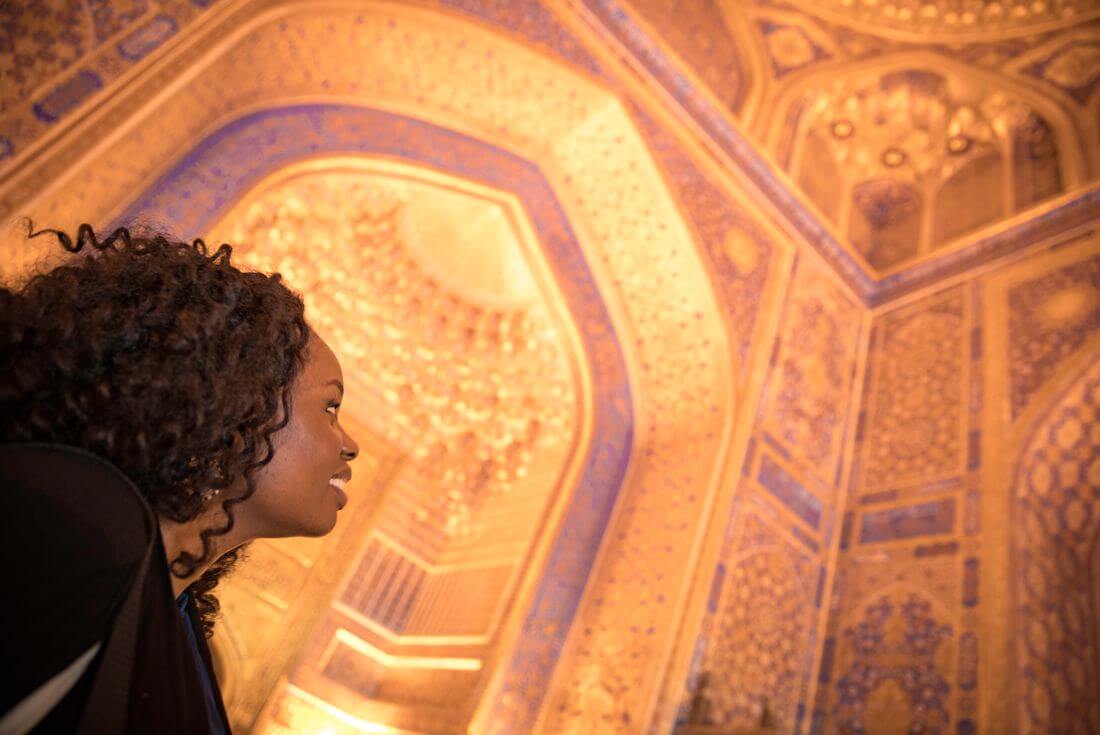
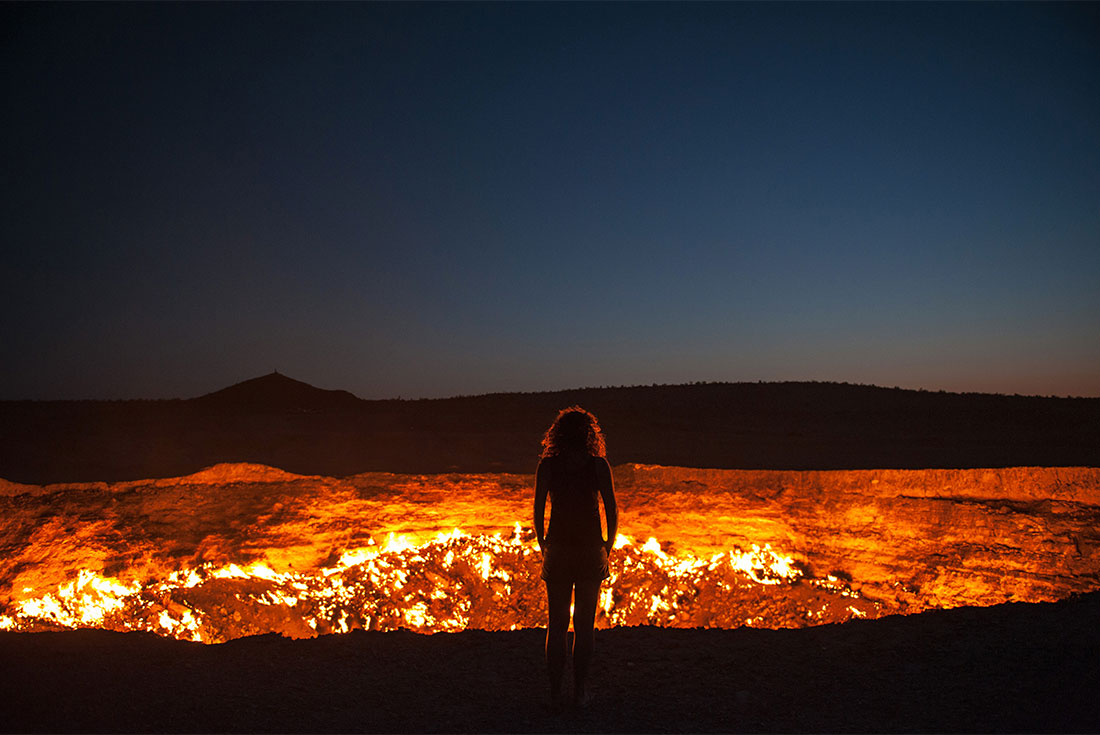
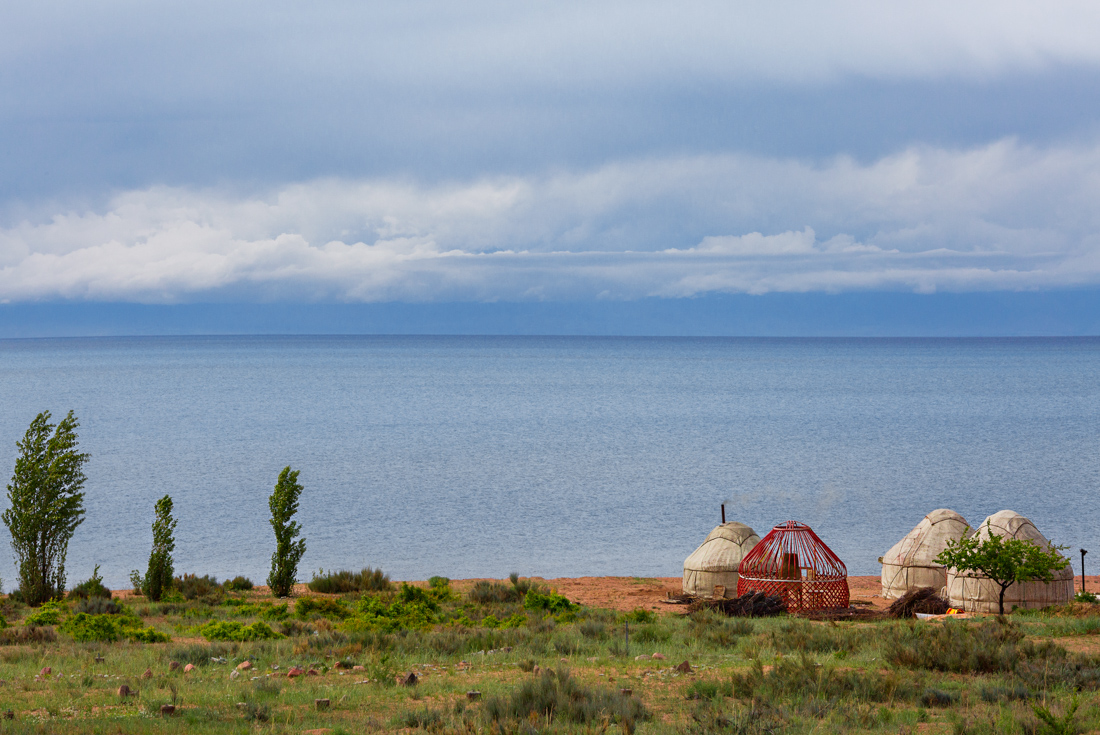
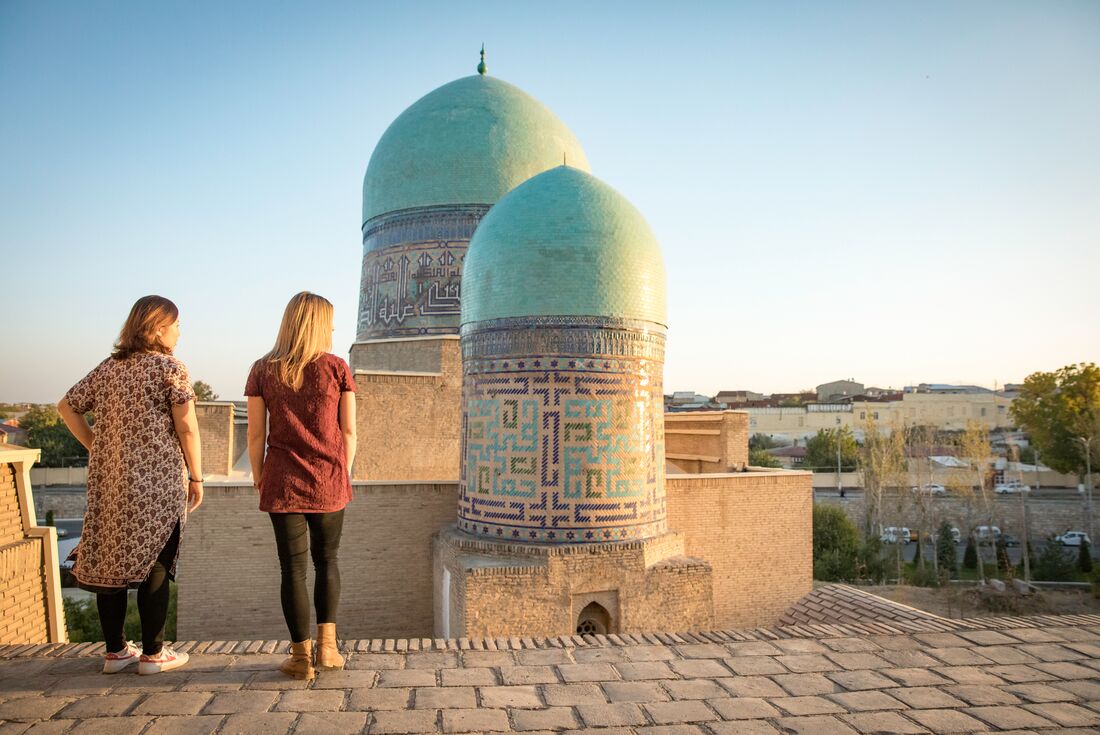
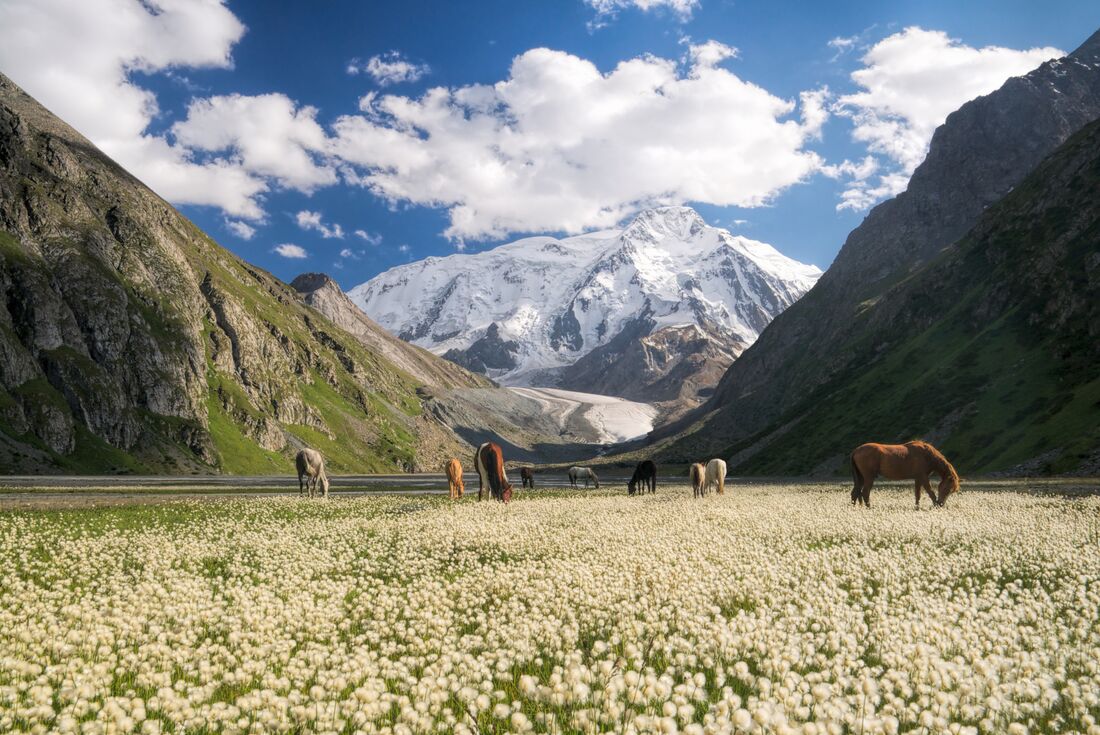
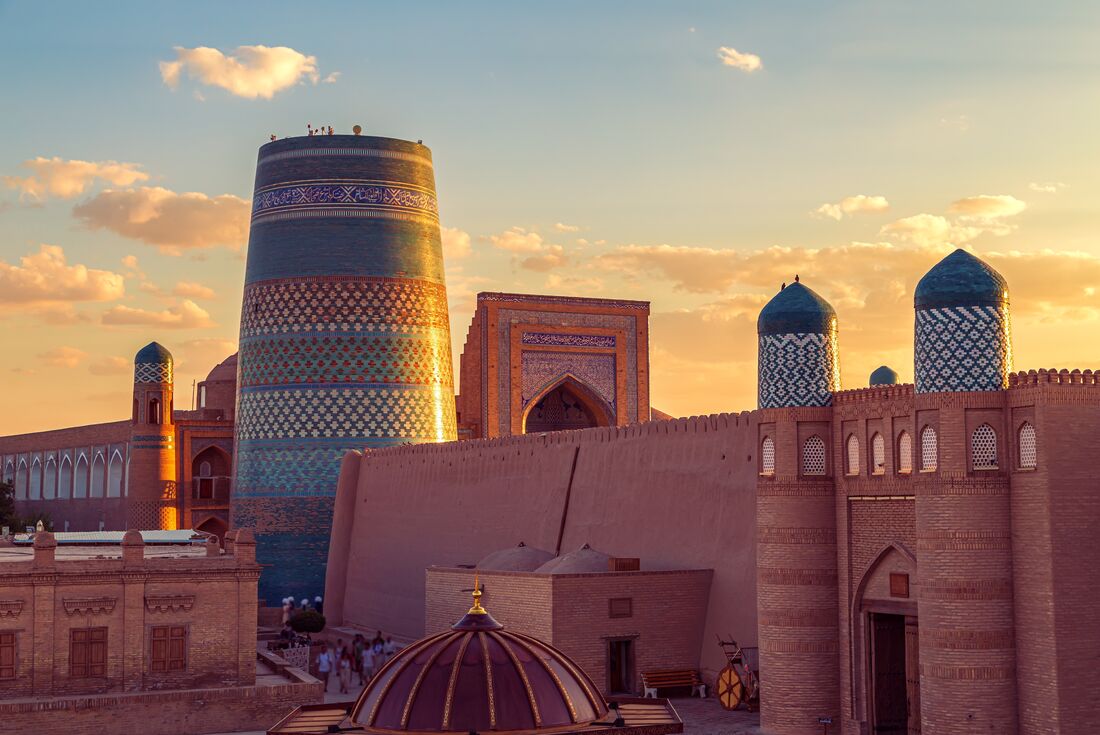
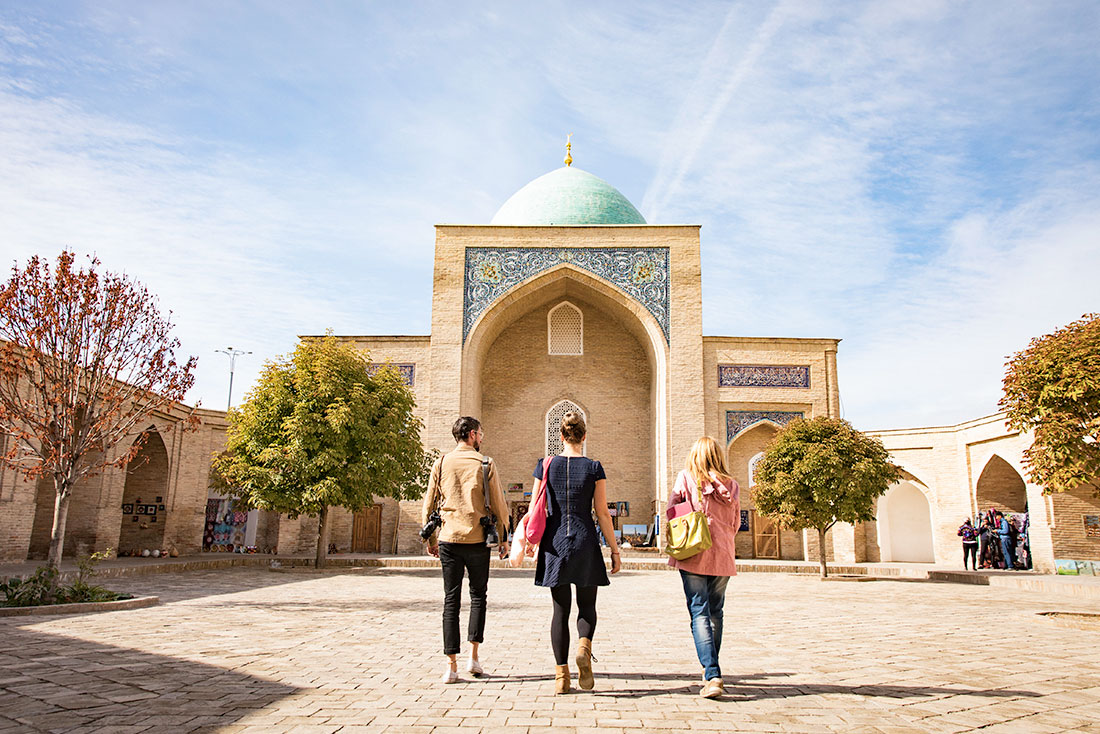
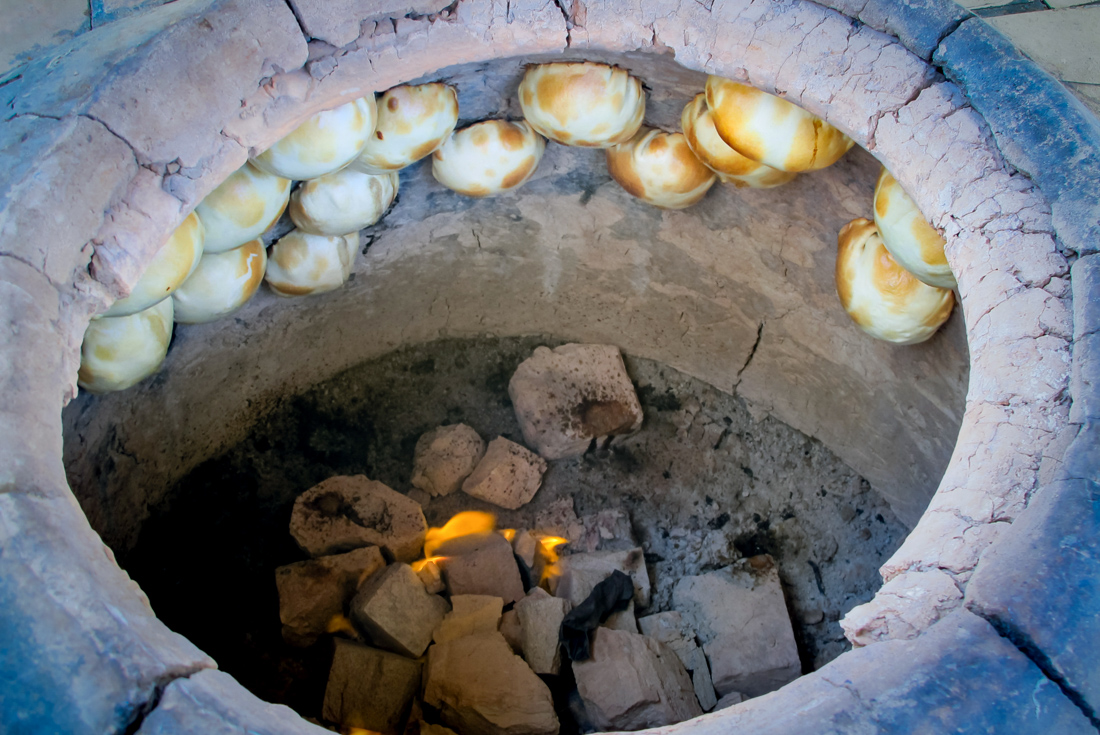
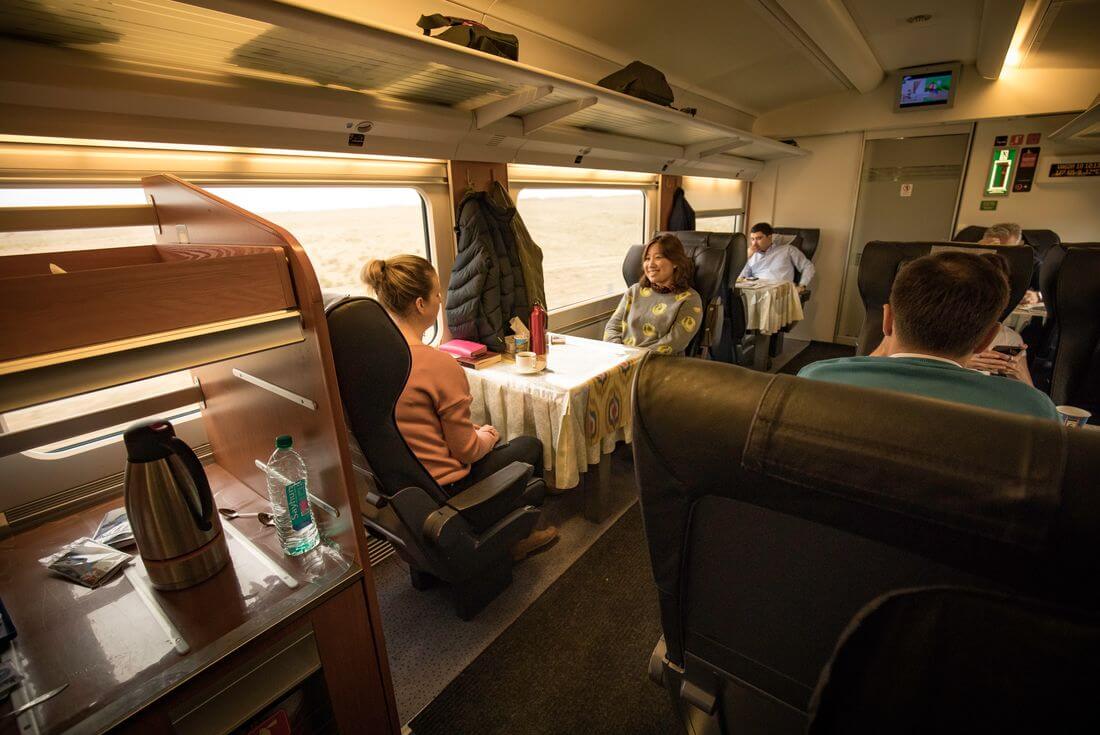
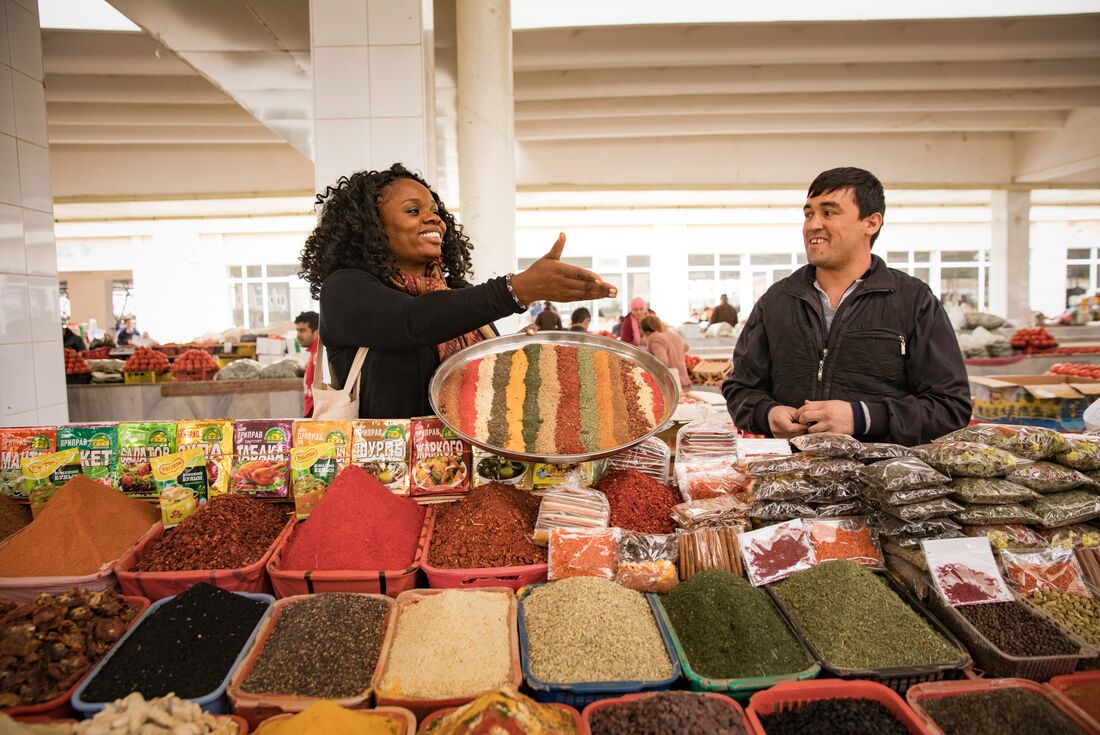
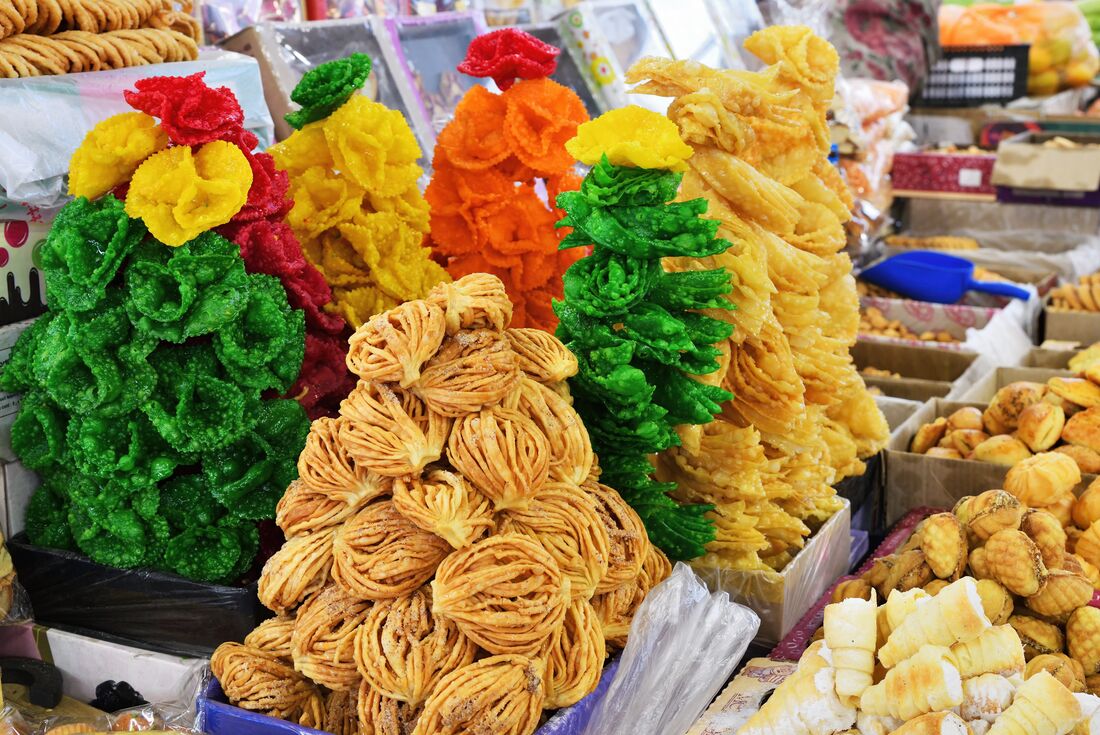
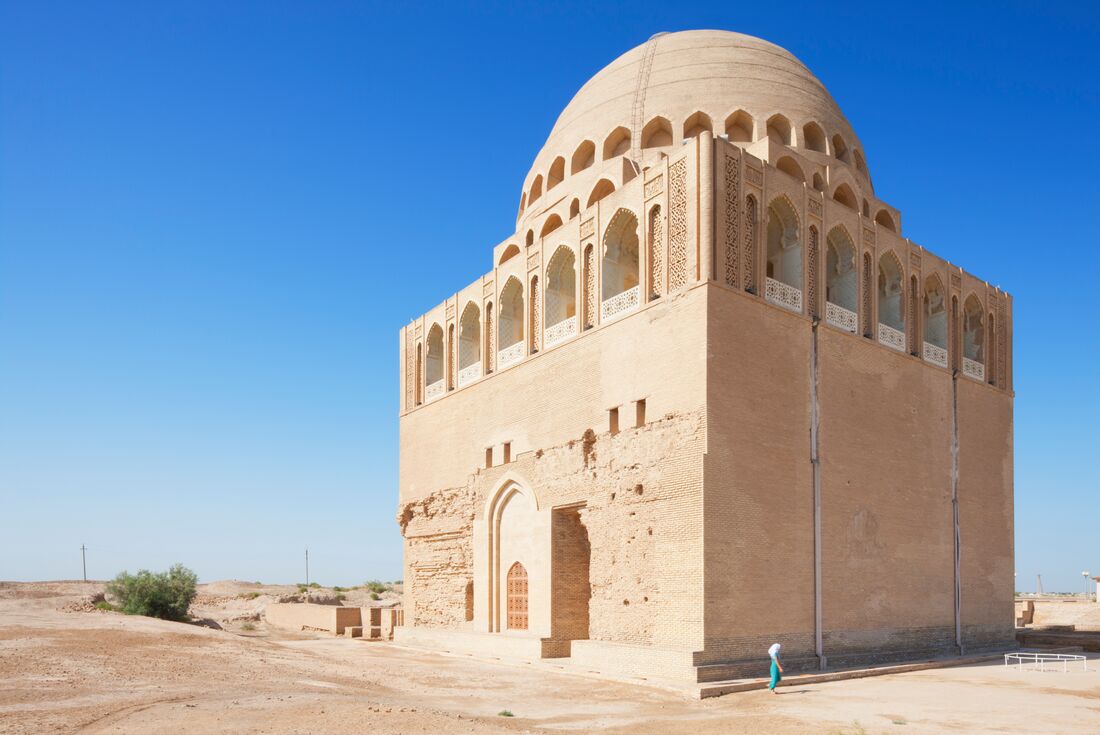
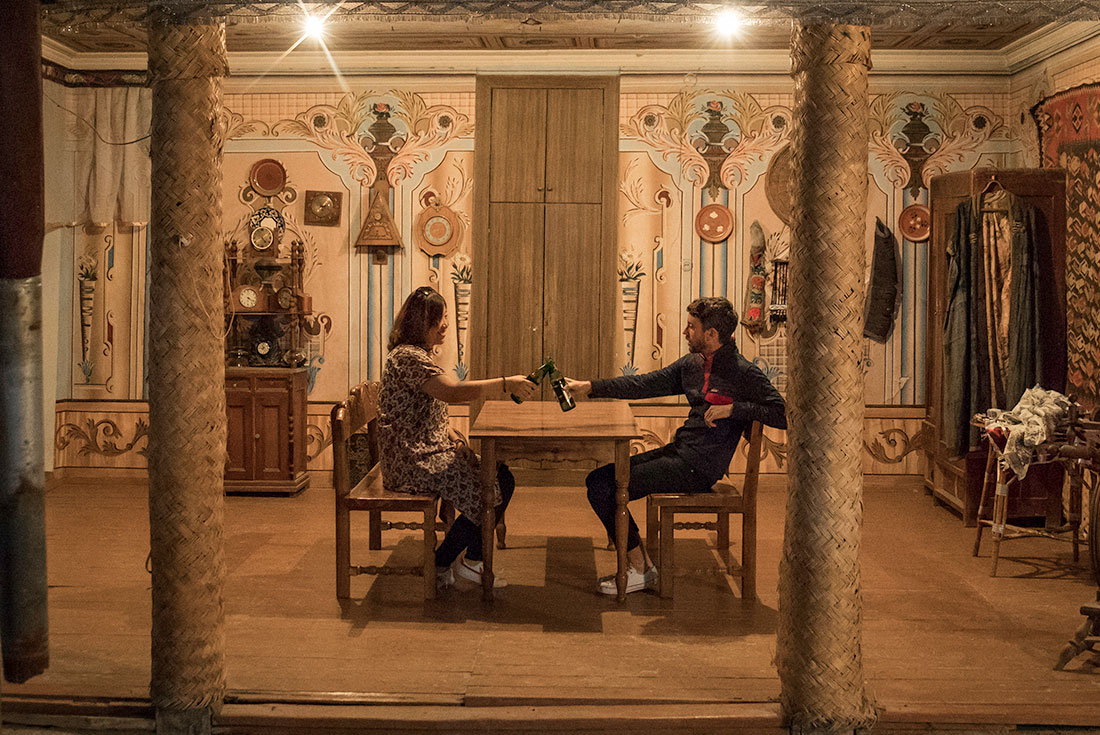
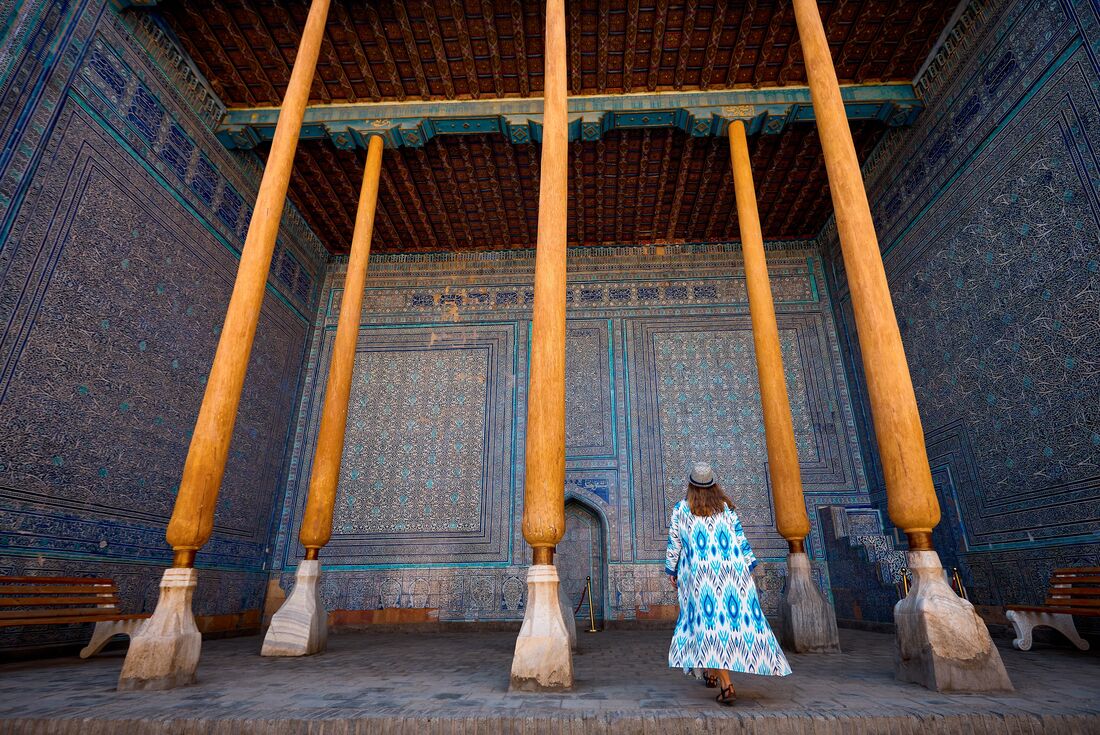
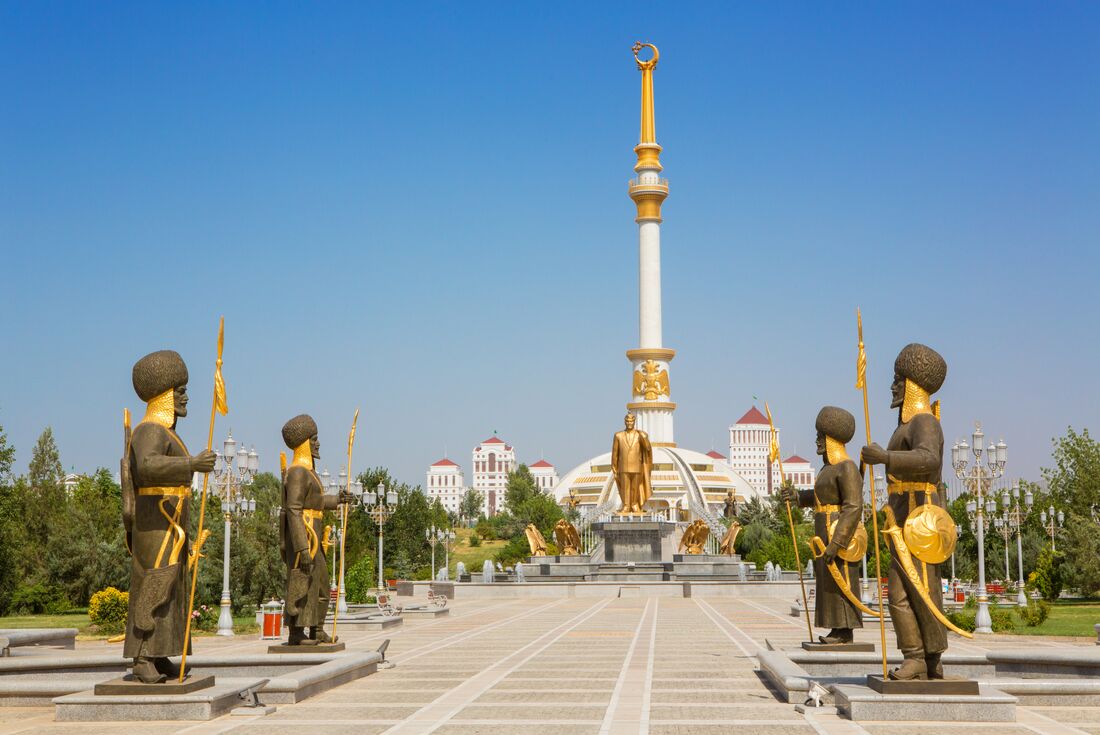
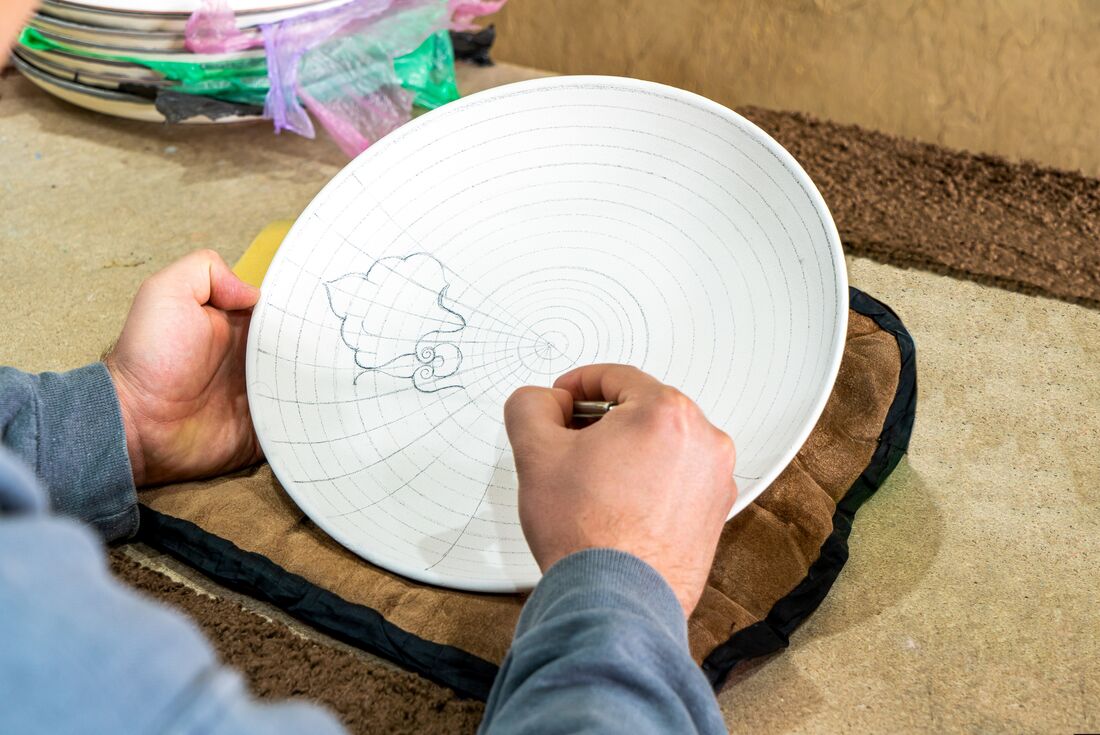
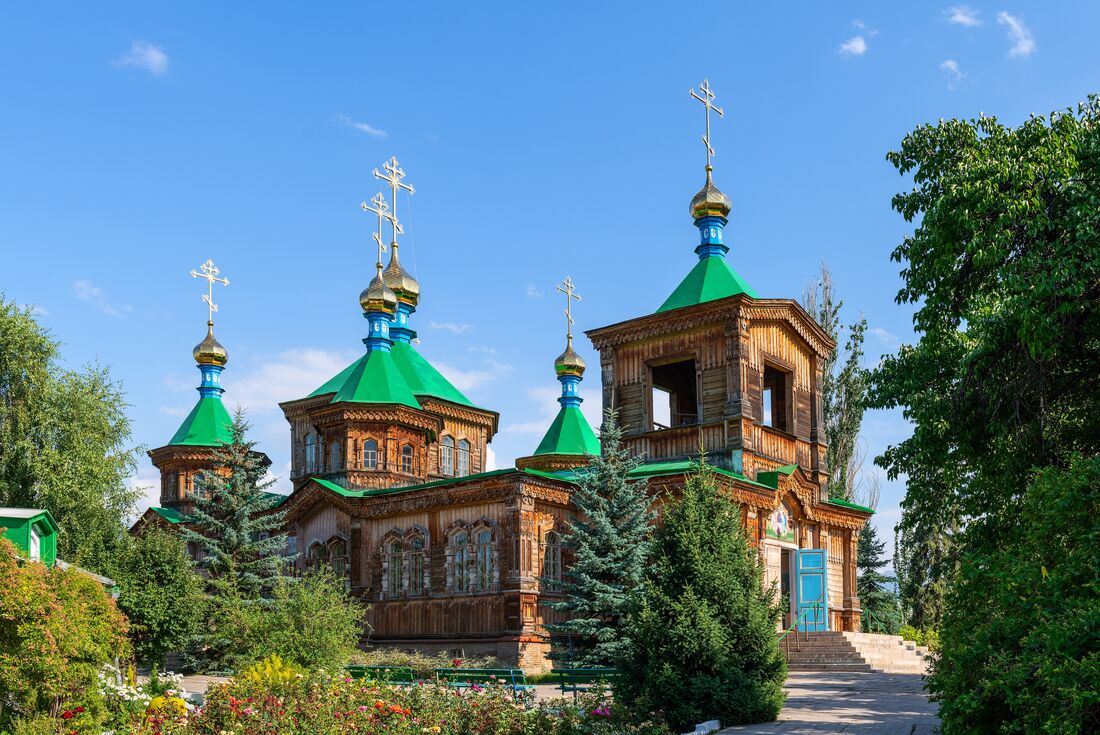

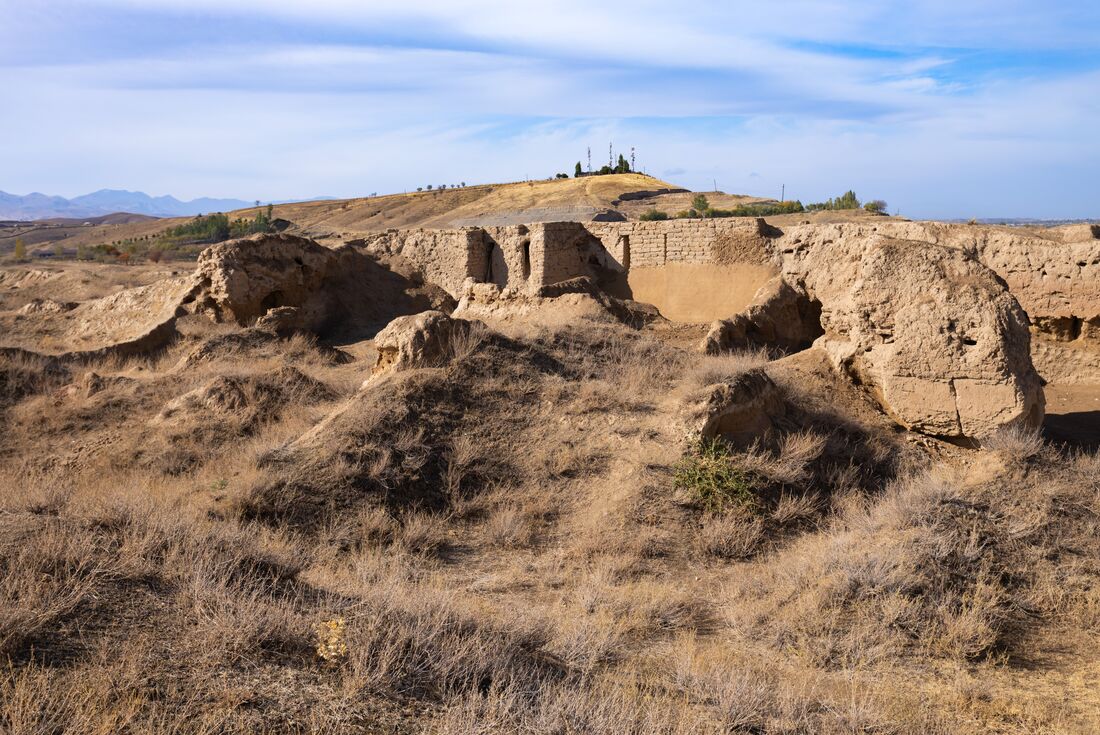
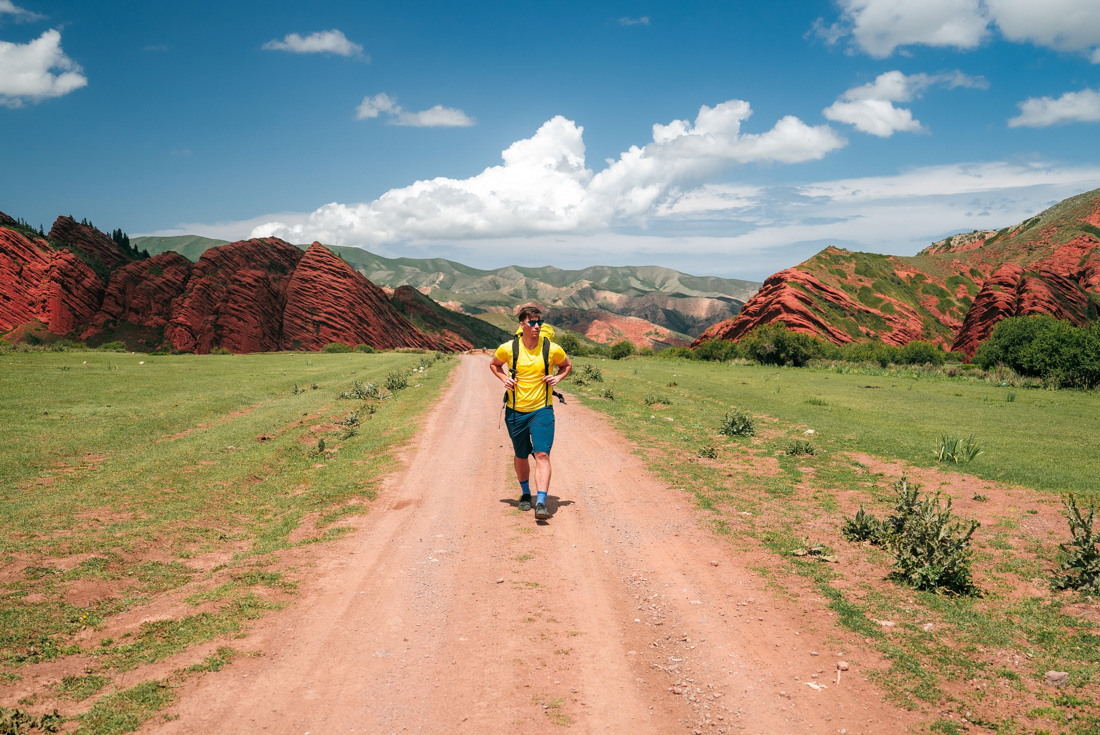
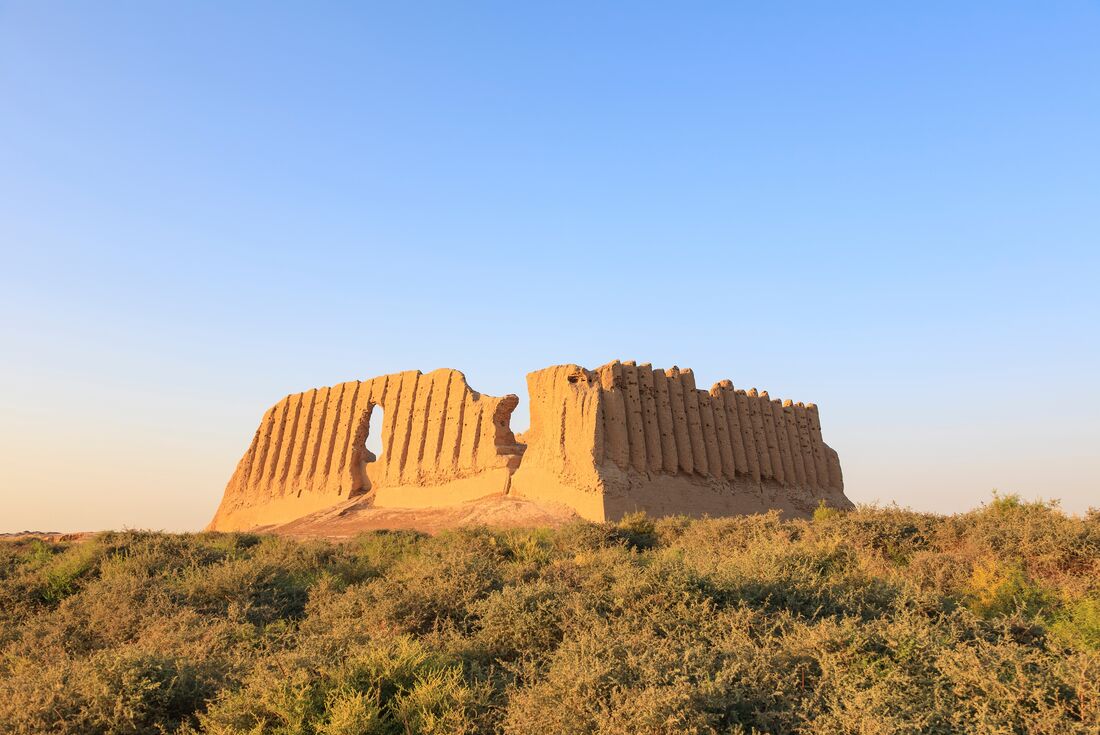
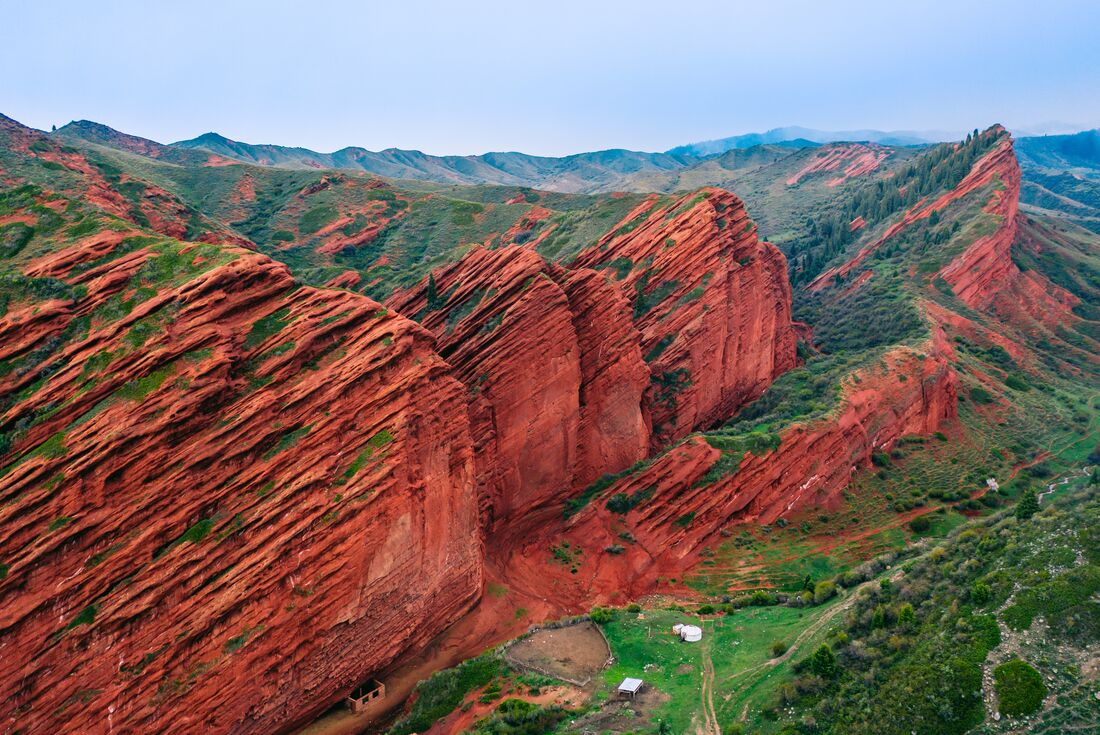
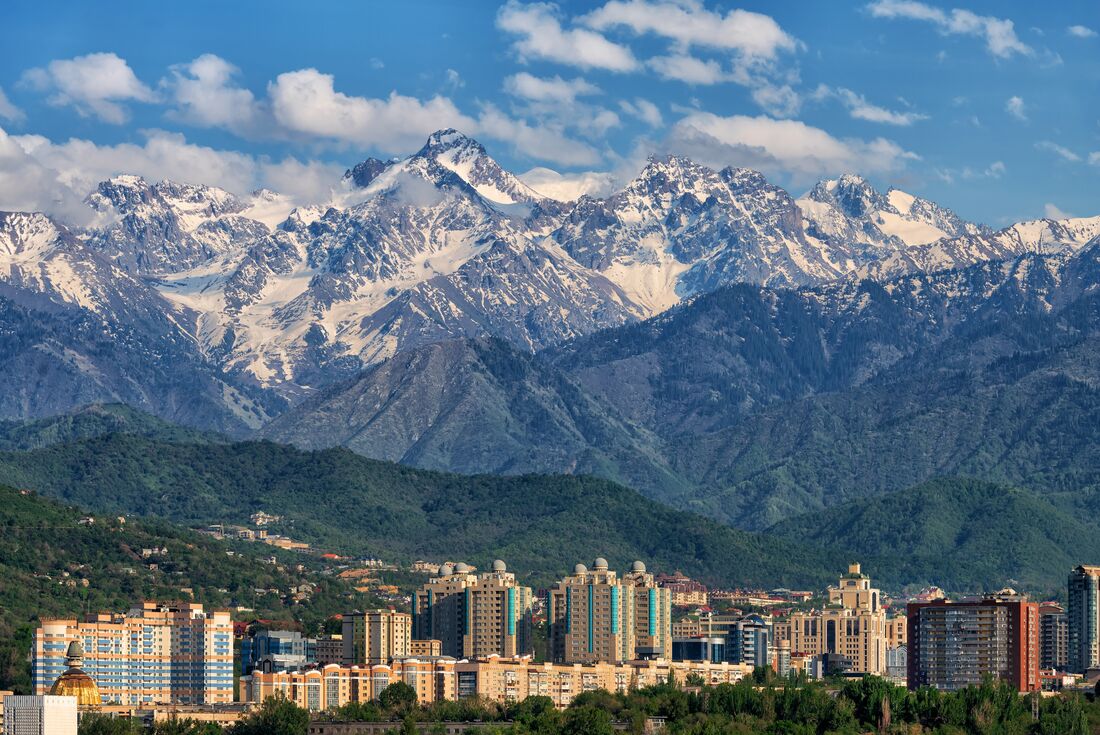
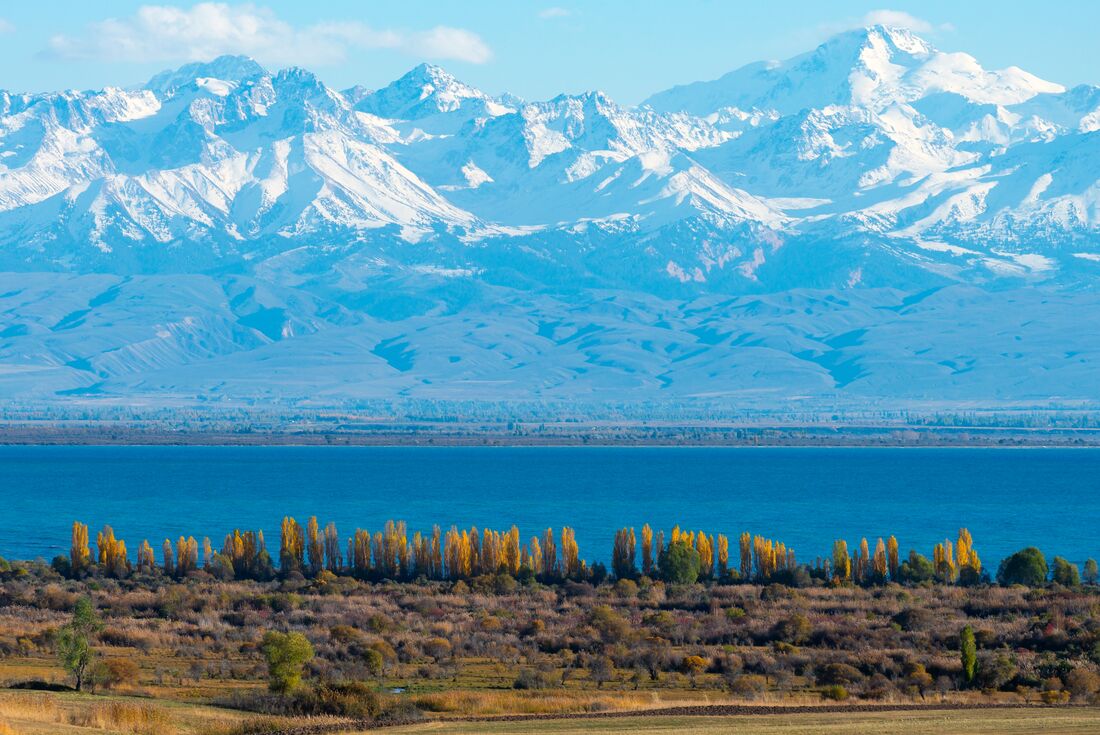

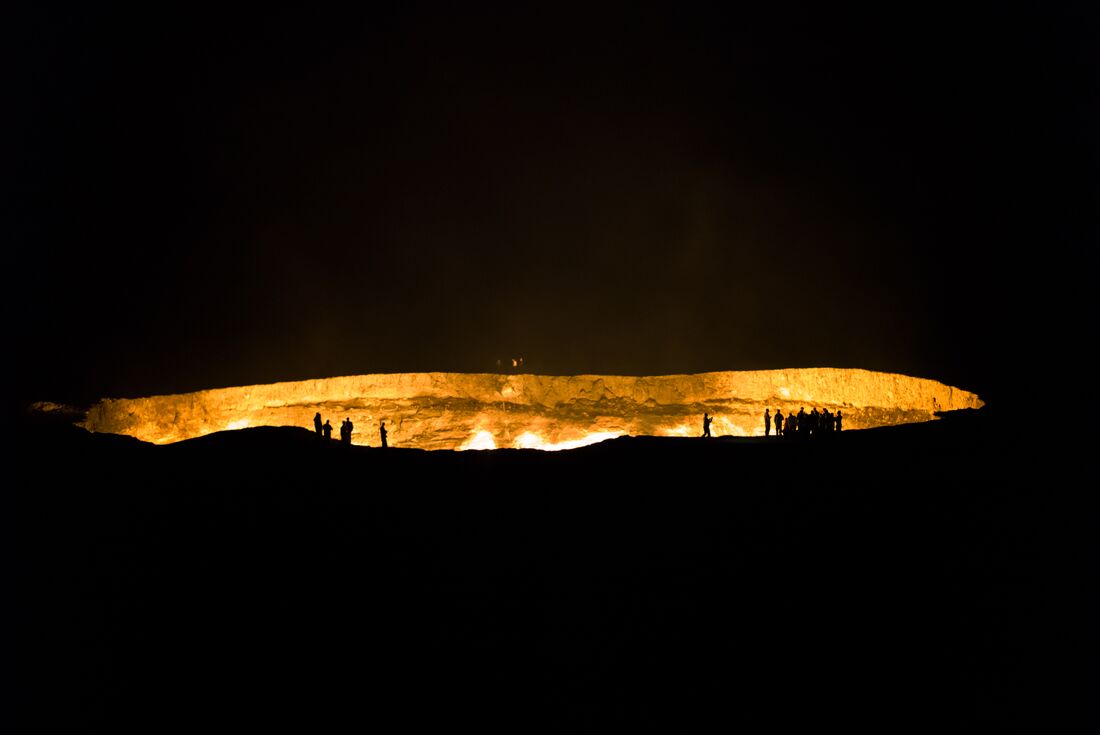
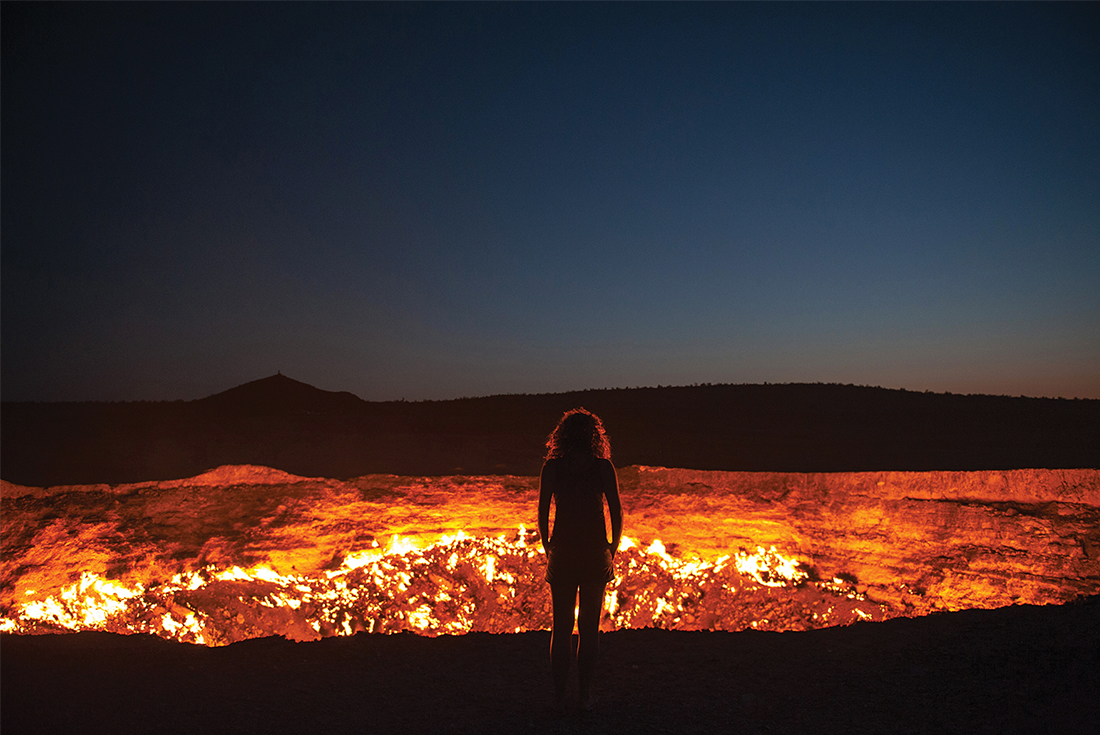
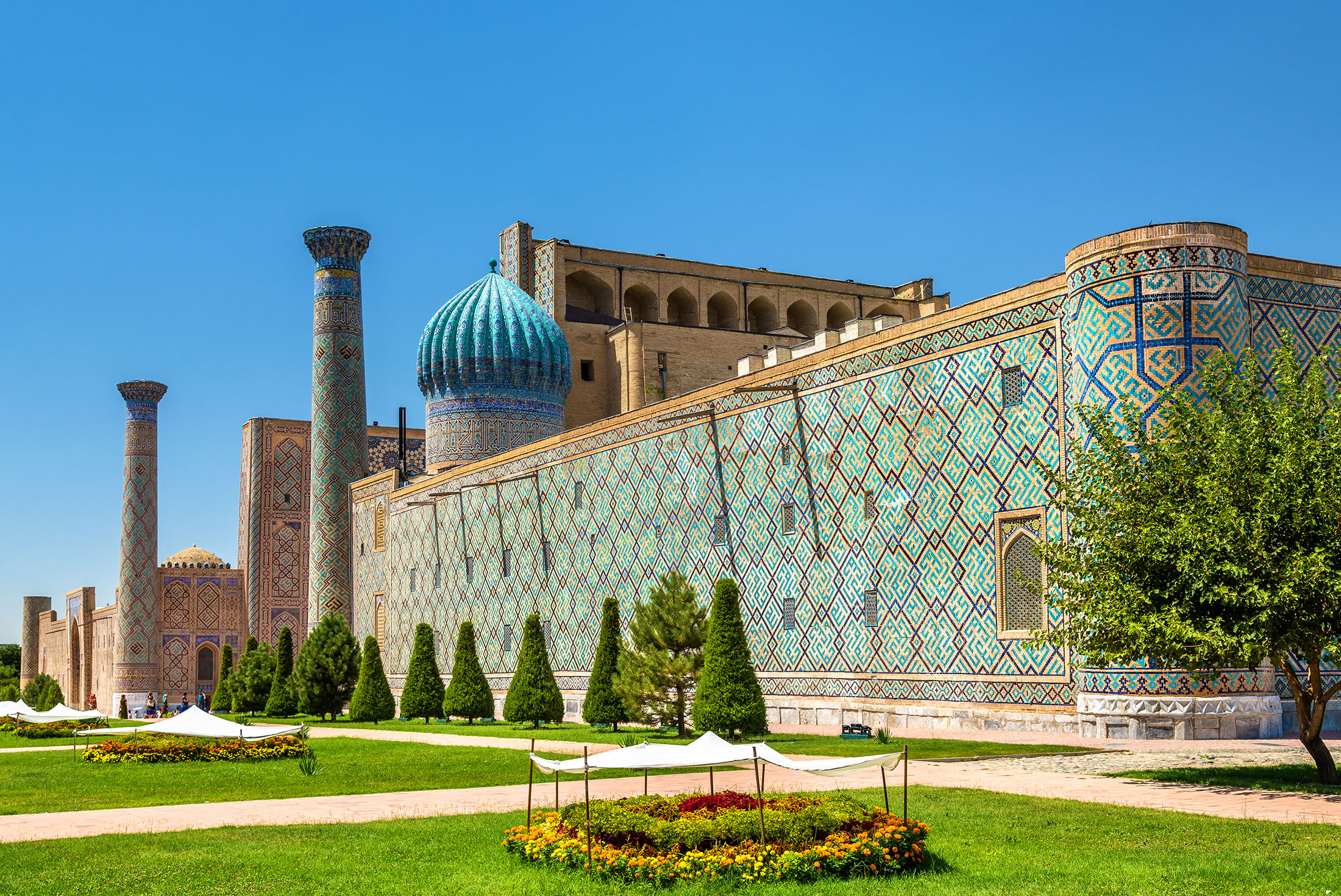
Astana - City tour
Astana - Local Jewler Visit
Turkistan – Caravan Serai complex
Otrar - Ancient settlement
Turkistan - Yasui Mausoleum
Almaty – Winery visit and wine tasting
Almaty – Turgen Gorge
Almaty – Lake Issyk
Almaty - Zenkov Cathedral
Almaty - Panfilov Park
Almaty - Museum of Kazakh Musical Instruments
Almaty - Zelenyi Bazaar
Charyn Canyon - National Park
Kolsay Lakes National Park - Hiking
Karakol - Dungan Mosque
Karakol - Holy Trinity Orthodox Cathedral
Karakol - Jeti Orghuz Canyon Hike
Cholpon Ata - Petroglyphs
Lake Issyk-Kul - Boat tour
Bishkek - City walking tour
Shamsy Valley - Burana tower
Don Aryk - Kyrgyz family visit and home-cooked lunch
Issyk-Kul Lake - Yurt workshop
Kochkor - Market
Kochkor - Women's Felt Co-op
Kyzyl-Oi - Boorsok Cooking Demonstration
Uzgen - Uzgen Minaret & Complex
Osh - Sulaiman-Too Mountain
Osh - National Historical and Archaeological Museum Complex
Kokand - home cooked lunch
Kokand - Rishton ceramics workshop visit
Margilan - Itak silk Factory visit
Kokand - Khudoyar Khan Palace Museum
Khujand - Jami Mosque
Panjakent - Ancient city wall & museum
Lake Marquzor - Tajik family visit with lunch
Samarkand - Leader-led orientation walk
Samarkand - Bibi-Khanym Mosque
Samarkand - Registan Square
Samarkand - Shakh-I-Zinda
Samarkand - Gur-e-Amir Mausoleum
Samarkand - Plov cooking demonstration & family visit
Tashkent - Chorsu Bazaar
Tashkent - Khast Imom Complex & Moyie Mubarek Library Museum
Tashkent - Amir Timur Square
Tashkent - City tour
Tashkent - Metro tour
Khiva - Islom Hoja Minaret & Medressa
Khiva - Juma Mosque
Khiva - Tosh-Hovli Palace
Khiva - Pahlavon Mahmud Mausoleum
Khiva - Kuhna Ark
Darvaza - "Door to Hell" Crater
Yerbent - Village visit
Nohur - Village walking tour
Geokdepe - Horse breeder visit with bread & snack cooking demostration
Ashgabat - Anau ruins
Ashgabat - Neutrality Arch
Ashgabat - Ertugrul Gazi Mosque
Ashgabat - City tour
Ashgabat - Nisa ruins
Ashgabat - Russian Bazaar
Merv - Sultan Sanjar Mausoleum
Merv - Erk Kala & Gayur Kala
Merv - Big & Small Kizkala
Mary - City tour
Learn about the Silk Road and its history. See the Registan in Samarkand, climb the ancient Panjakent City Wall and visit the UNESCO-protected town of Khiva.
See the natural landscapes of this corner of the world. Travel through the vast Kazakh steppe, journey through the mountainous Kyrgyzstan to Issykul Lake and toast to the eternal flames of the Darvaza Crater.
Connect with locals – discover traditional nomadic life in yurt stays, enjoy hearty home-cooked meals and chat with stall owners in local bazaars.
Take an overnight train in Kazakhstan, explore the desert in Turkmenistan on a 4WD and experience life on the road like the locals do!
Travel through all five Stans, each with its own character and turbulent historical events that shaped them into what they are today.
Best Western Plus Astana Hotel, 13A Dostyk Street , Astana, KAZAKHSTAN, Phone: +7 7172 27 79 99
Sport hotel, 10 yil Abdanchylyk str Olympic complex Ashgabat Turkmenistan , Ashgabat, TURKMENISTAN
1. A single supplement is bookable if you’d prefer not to share a room on this trip. The single supplement excludes Day 4 & 7, Day 13-17, Day 28, 31 & 32, where you will be in shared accommodation. Single supplement is subject to availability. Please speak to your booking agent for further information.
2. Please provide your passport details including full name exactly as per passport at the time of booking (including any middle names listed on your passport) for flight and train tickets booking no later than 45 days prior to departure. Fees may apply for amendments or failure to provide the required details within 45 days of departure.
3. This is a multi-country trip. Please read the visa section of the Essential Trip Information carefully for the visa requirement. You'll need to travel with one passport throughout the trip as using different passport for exiting and then entering a different country may cause issue at the immigration. Visa for Turkmenistan requires a Letter of Invitation in advance which needs to be organized by our local operator. Essential documents for the letter of invitation should be submitted no later than 60 days before the trip.
4. Independent travel is not allowed in Turkmenistan. If you have post trip accommodation booked with us, you'll only be allowed to explore restaurants and shops nearby the hotel without a tour guide.
While we always endeavour to provide the best possible holiday experience, due to the nature of travel and the areas we visit sometimes things can and do go wrong. Should any issue occur while you are on your trip, it is imperative that you discuss this with your group leader or local representative straight away so that they can do their best to rectify the problem and save any potential negative impact on the rest of your trip.
We recognise that there may be times when your group leader or local representative may not be able to resolve a situation to your satisfaction - if this is the case, please ask the group leader or local representative to speak to their direct manager.
You may also choose to provide details in your online feedback, which we ask you to complete within 30 days of the end of your trip. Please do be aware that it is very difficult for us to provide any practical help after the trip is completed, so informing us while still travelling will give us the opportunity to resolve the issue in real-time., For general contact details please use the following page: https://www.intrepidtravel.com/contact-us, In case of a genuine crisis or emergency, you can reach our local office on the numbers below:
, For general enquiries or questions about your booking, please contact your agent or adventure specialist, or visit us at www.intrepidtravel.com/contact-us
In case of a genuine crisis or emergency, you can reach our local operator on the number below., Intrepid local operator: Available for phone call on: +998 93 505 85 33
This trip covers a lot of ground. The trip is designed for those who are keen to travel the region in depth and understand each country through a variety of destinations rather than only ticking off the iconic sites. It’s suitable for experienced travellers who want to see an unknown part of the world. You'll need to be reasonably fit to handle a long overland journey like this., This is an overland journey, so there will be some very long days of travelling and driving, often over rough terrain. This can be tiring at times and will require a great deal of patience at others, especially at border crossings. The vehicle size can be rather compact when the group is almost full. This is to enable us to travel to small villages where the general road condition doesn't allow big buses. We find this is a great way for the group to bond and share an amazing journey together and there will be stops along the way to take photos and stretch your legs too., To visit Turkmenistan, Letters of Invitation is needed in advance to apply for your visa (which you can then get on arrival). There are difference visa requirements for different nationalities in all the countries visited on this trip, please see the ‘Passport and visas’ section of the Essential Trip Information for more details., Tourism is strictly controlled in Turkmenistan, On your own, you can explore nearby your hotel, visiting shopping centres or restaurants, but we recommend that further exploration is with your local leader. Please don’t take photos when not with your local leader. Photos of the streets, people in uniforms and many buildings are prohibited., Be prepared to experience the full legacy of the Soviet era – not just in the sights and history, but also in the standards of accommodation and service. A range of different accommodations are used on this trip, including yurt camp, home stay, guesthouse, hotels and camping. The condition at the yurt stays and the home stays are basic with shared facilities. This means the group being split between different houses, multi-share rooms/yurts and the bathroom facilities are separated from your sleeping quarters. You won't be able to take a shower every day on this trip., This trip is a combination of three trips. Please review the itinerary for details of when your fellow travellers and leader will change.
Learn about the Silk Road and its history. See the Registan in Samarkand, climb the ancient Panjakent City Wall and visit the UNESCO-protected town of Khiva., See the natural landscapes of this corner of the world. Travel through the vast Kazakh steppe, journey through the mountainous Kyrgyzstan to Issykul Lake and toast to the eternal flames of the Darvaza Crater., Connect with locals – discover traditional nomadic life in yurt stays, enjoy hearty home-cooked meals and chat with stall owners in local bazaars., Take an overnight train in Kazakhstan, explore the desert in Turkmenistan on a 4WD and experience life on the road like the locals do!, Travel through all five Stans, each with its own character and turbulent historical events that shaped them into what they are today.
All group trips are accompanied by one of our group leader or local representative. The aim of the group leader or local representative is to take the hassle out of your travels and to help you have the best trip possible. Intrepid endeavours to provide the services of an experienced group leader or local representative however, due to the seasonality of travel, rare situations may arise where your group leader or local representative is new to a particular region or training other group leader or local representative.
Your group leader or local representative will provide information on the places you are travelling through, offer suggestions for things to do and see, recommend great local eating venues and introduce you to our local friends. While not being guides in the traditional sense, you can expect them to have a broad general knowledge of the places visited on the trip, including historical, cultural, religious, and social aspects. At Intrepid we aim to support local guides who have specialised knowledge of the regions we visit. If you are interested in delving deeper into the local culture at a specific site or location then your group leader or local representative can recommend a local guide service in most of the main destinations of your trip.
TRAVEL ADVISORIES & ALERTS
We recommend that you check your government's foreign travel advisory for the latest information about the destination before you travel. You will also need to ensure that your travel insurance covers you for all destinations and activities on your trip. We also recommend saving the phone number for emergency consular assistance for your government’s consulate in the destination/s you’ll be travelling. Links to travel advisories and any current travel alerts for our trips can be found here: https://www.intrepidtravel.com/travel-alerts
PERSONAL SAFETY
Ensure you have a secure method of carrying your passport, phone, credit cards and cash while travelling such as a money belt. Leave all other high value items, including jewellery, at home Use safety deposit boxes at hotels to store your valuables when available and ensure your luggage is lockable. Be aware of the risk of pick-pocketing and petty theft. Exercise caution when walking at night, don’t walk alone and stick to well-lit streets wherever possible. Be vigilant on public transport and look out for your fellow travellers. Take precautions such as carrying your bag in front of you and never leaving personal items unattended.
LGBTQIA+ TRAVELLERS
Intrepid welcomes all LGBTQIA+ customers on our trips, however we operate in parts of the world that are less accepting. We support LGBTQIA+ customers to travel to these destinations and are committed to ensuring they face no discrimination on any part of the trip we control. We recommend you visit Equaldex (https://www.equaldex.com/) and your government's foreign travel advice for LGBTQIA+ travellers when choosing your trip., KAZAKHSTAN
Kazakhstan is generally a safe country to travel in, provided you follow normal safety precautions.There have been occasional reports of foreigners being targeted by pickpockets in tourist or busy shopping areas or on public transport. Thieves posing as police officers or unsolicited 'meet-and-greet' drivers at airports have robbed travellers. Official taxi drivers and police officers have identification. If approached, ask to see credentials. Avoid taking unofficial taxis or taxis that have other passengers. Be careful when crossing streets as cars may not give way to pedestrians. Carry your passport or a copy of it, with appropriate registration, at all times. , KYRGYZSTAN
Few travellers will experience any safety issues in Kyrgyzstan if general precautions are followed. Take care if you go out after dark. Keep large amounts of money hidden at all times and be wary of strangers offering help or being over-friendly. Be particularly aware of your surroundings when using currency exchange offices. Thieves posing as off duty police, uniformed police or unsolicited 'meet and greet' drivers at airports are known to target travellers. Avoid walking alone at night and don’t travel in unofficial taxis. Carry your passport or a copy of it, at all times., UZBEKISTAN
Uzbekistan is generally a very safe place to travel. Petty crime targeting foreigners and tourists sometimes occurs in Uzbekistan. A regulation has been introduced allowing only licensed taxis (with certain colour and signs and card payment equipment) to operate in Uzbekistan. However, unlicensed taxis continue to operate. You should use official taxis where possible. There have been reports of robberies by individuals posing as police officers. Avoid obvious displays of wealth, particularly in rural areas. Crime levels are higher at night. Avoid walking alone.
It is illegal to photograph government and military buildings. This may result in confiscation of equipment or detention. Check before taking photographs of government or security infrastructure.
There is a ban on the sale of alcohol and tobacco to those under 20.
Homosexuality is illegal under Uzbek law and is still very much frowned upon socially. You should take care over public displays of affection.
, TAJIKISTAN
It is now 20 years since the Tajik civil war ended. The political situation is generally stable, but you should remain vigilant in public places and avoid any demonstrations or large gatherings of people.
There are sporadic clashes between border forces and drug traffickers along the Afghan border, particularly in the Gorno-Badakhshan Autonomous Oblast. Dushanbe is relatively secure, but there have been occasional muggings and petty crime against foreigners. Women should avoid going out alone at night, and may suffer harassment even during the day. You should maintain at least the same level of personal security awareness as at home.
Carry a photocopy of your passport at all times. Requests to produce an ID are frequent. Taking photos of anything that could be perceived as being of military or security interest may get you into trouble with the authorities. Although rarely enforced smoking whilst walking on the street is illegal and punishable by a fine. , TURKMENISTAN
Turkmenistan has a high risk of exposure to rabid dogs and other mammals in the country. Access to post safe post-exposure prophylaxis can be rather limited. Please consult with your doctor regarding taking pre-exposure vaccination.
Incidents of mugging, theft and pick pocketing are rare, but take sensible precautions and keep valuables out of sight. Women should avoid going out alone late at night.
Please note the Government of Turkmenistan is intending to make the country free from smoking and drug taking. As a result, smoking has been prohibited in ALL public places, including streets, parks, airports, practically everywhere except specially equipped areas. If spotted smoking, you will be taken to the nearest police station and be told about their laws and the harmful nature of smoking. You will be required to sign some related forms, and as a result will have to pay a formal fine of approximately 300 manat. Those who refuse to go to the police station, pay the fine, or quarrel with police officers (swear or shout) may even end up in a temporary detention for up to 15 days.
Attempts to import cigarettes into Turkmenistan or transit across the country territory of the amounts exceeding the permitted (no more than 40 cigarettes/2 packs per person for private use only) will also result in some unpleasant procedures at the arrival border port and issuance of a formal fine – 500 manat.
Driving standards are poor. Road travel at night outside cities is particularly dangerous because of the condition of the roads. Seat belts, if fitted, should be worn at all times.
Licensed taxis are clearly identified and yellow in colour. Although taxis have meters, drivers will usually ask foreign nationals for a set fee of around 5 to 10 Manat. Taxis from the airport cost more and drivers usually ask for US$. Most taxi drivers do not speak much, if any, English. Using unlicensed taxis is not recommended.
PASSPORT
You’ll need a valid passport to travel internationally and most countries require your passport to have a minimum of 6 months validity, so remember to check the expiry date.
We need your passport information to get everything ready for your trip so it’s important that the information on your booking matches your passport exactly. Please take care to provide the correct details. We recommend carrying a copy of the photo page of your passport while travelling and leaving a copy at home with family or friends.
VISAS & ENTRY REQUIREMENTS
Many countries require a visa and obtaining the correct visa for your trip and any countries you may transit through is your responsibility. We recommend you check your visa requirements as soon as you have booked your trip. This will ensure you have time to prepare your documents and for your visa application to be processed. You can check the entry requirements for your nationality on your government's foreign travel advisories, consular websites or on our page here: www.intrepidtravel.com/visa-entry-requirements, KAZAKHSTAN VISA
Many nationalities, including Australia, Germany, USA, Canada, United Kingdom and New Zealand do not require a visa for stays of up to 30 days. Please check with your local consulate for the most up to date requirements.
If you may require a visa for Kazakhstan, you will need a Letter of Invitation issued by their government. Our local team can support this. Please contact your booking agent if you need it. It'll take approximately 10 working days for the government to process and cost 70 USD per application. Please note that the issuance of the LOI will be entirely up to the discretion of the Kazakhstan Foreign Affairs office. , KYRGYZSTAN
Most nationalities do not require a visa to travel to Kyrgyzstan for up to 60 days, including Australia, Belgium, UK, Germany, Netherlands, Canada, New Zealand, Ireland, USA and Switzerland. Other nationalities can check this website first about applying for an E-visa: https://www.evisa.e-gov.kg
Otherwise, please check with your nearest embassy and obtain a visa in advance if required. Please contact us should you need any supporting documents for your visa application. , UZBEKISTAN VISAS
Many nationalities no longer require a visa for stays of up to 90 days, including most European countries, Great Britain, Australia & Canada.You can check if you are eligible for the visa free scheme here: https://e-visa.gov.uz/main
E-VISAS
For nationalities not included in the visa exemption list, including US citizens, an e-visa is available. The e-visa is issued for a period of stay in the territory of Uzbekistan up to 30 days with a single entry and is valid for 90 days from the date of issue. Travellers must submit an online application for a visa at least three working days before the planned date of travel to Uzbekistan. The consular fee for processing and issuing an e-visa is US$20 to be paid online. Please check if you are eligible for an e-visa and apply here: https://e-visa.gov.uz/main
Note that you'll need to apply for double or multi-entry visa if your trip enters Uzbekistan multiple times.
INFORMATION REQUIRED FOR E-VISA APPLICATION
- Address of your joining point hotel (or if visiting Uzbekistan mid-trip, use:
Central Palace Halal Hotel
2 Afrosiyob ko'chasi, Tashkent)
- You will need to have a scanned PDF copy of your passport to upload for your application
- You will need to upload a passport photo within the required parameters
- Your passport will need to be valid for at least three months after you’ve entered Uzbekistan to obtain a visa.
South African passport holders: A paper visa is required for Uzbekistan. Intrepid may be able to provide supporting documents at an extra expense depending on what's required. Please inquire with your booking agent for getting such supporting documents.We advise South African passport holders to start applying at least 3 months in advance. You may need to arrive early in Bishkek to apply in the Uzbekistan embassy in Bishkek.
REGISTRATION IN UZBEKISTAN
All visitors to Uzbekistan must register with the local department of the Ministry of Internal Affairs within 3 working days after arrival. When staying at a hotel, you will be registered automatically. Please ensure you keep any registration documents issued by the hotel until you exit the country., TAJIKISTAN
Tajikistan has a visa exemption policy for a lot of countries, including Australia, New Zealand, Canada, United States of America, Germany etc, for up to 30-day stay. To check if you'll need a visa for Tajikistan, please check below link:
https://www.consular.tj/visa-system-with-foreign-countries.aspx
British nationals and other nationalities not eligible for visa exemption will need to apply for an Evisa through below link: https://www.evisa.tj/
(Please note that you do not need a Gorno-Badakshan Autonomous Oblast (GBAO) permit for this trip). We advise you to start the application at least 2 months in advance to allow enough time for your evisa to be issued.
If you need to apply for an e-visa, occasionally a Letter of Invitation (LOI) arranged by a Tajikistan tour company, may be required. We recommend you apply for the evisa first and should a LOI is required during the process, Intrepid can assist with this arrangement through our local agent. A scanned coloured copy of your passport and your visa application ID is required along with payment for the fee (50USD) to issue the LOI. The fee is payable at the time of requesting the LOI.
Once requested, the LOI can take a minimum of 5 working days to process. Once received this will be sent to you by email for you to update or submit your e-visa application. We recommend you start the visa process at least 2 months ahead of departure. The Letter of Invitation is no guarantee of a e-visa being granted. Once your e-visa has been issued we recommend you print out your e-visa and take a copy with you when travelling.
Below is the information required for filling out the application form:
GBAO Permit - No
Purpose of visit type - Tourism
Purpose of visit - Tourism sightseeing or Tourism vacation
Group identifier - leave blank
Date of arrival - See border crossing day on the itinerary
Address in Tajikistan - Atlas Hotel, 32 Nisor Muhammad Street, Dushanbe, Tajikistan, +992 44 625 1818
Instances of harassment by officials at Dushanbe International Airport have been reported. This typically involves requests for payment for allegedly incorrect documentation or other offences. Some reports state that airport officials have acted in an intimidating manner. You should ensure that your documentation and papers are in order before passing through border control at the airport. If you suffer harassment or intimidation at the airport you should report this to your travel agent and/or the consular bureau at the airport., TURKMENISTAN
All travellers require a visa to enter Turkmenistan. To apply for the visa, you need a Letter of Invitation (LOI) issued by the Turkmenistan Ministry of Foreign Affairs. Our local operator will apply for the LOI on your behalf.
LETTER OF INVITATION
To request your LOI, we require:
- A clear, colour scan of the photo page of your passport
- A digital, colour passport photo (not a scan of a printed photo)
- A completed Turkmenistan LOI application form, which must be completed online, not handwritten (please contact your booking agent to request this)
After submitting these documents to your booking agent, our local operator will apply for the LOI on your behalf. This service is included in your trip cost.
The LOI can be applied for within three months of travel. It will be processed in Turkmenistan, and this will take six to eight weeks. We recommend submitting all your documents as early as possible within the three-month window to allow for delays in processing.
Your LOI status (approval or rejection) will be advised approximately one month prior to travel. Please keep this in mind when booking flights.
Print your LOI before leaving home.
FEES
An LOI is not a visa. With your LOI, you can apply for a visa at your nearest embassy or for a visa on arrival at Ashgabat airport or the land borders.
The fees below are subject to change without notice:
- The visa on arrival fee is currently USD 55.
- You will need to complete a migration card and pay a fee, which is currently USD 18.
- It’s possible a USD 10 processing fee may be charged.
- You will be required to pay for a PCR test upon entry. You cannot take this test in advance. The fee is currently USD 35. The fee is compulsory, but only some people will be tested.
USD cash is the only payment accepted at immigration in Turkmenistan. Card payments and other currencies are not accepted. We recommend having exact amounts or small notes as they will not have change.
You will need USD 1 notes for bus transfers at land border crossings.
ADDITIONAL CONSIDERATIONS FOR TURKMENISTAN
Some professions may find it difficult to obtain an LOI. For example, police, public servants, journalists, media professionals.
Independent travel is not allowed in Turkmenistan. Your visa will only be valid for as long as services are provided by Intrepid and its local operator (accommodation, guides, transport, etc.).
Medications containing tramadol, morphine, opiates or any other similar components are banned in Turkmenistan as they are considered narcotic drugs. Do not bring any medications containing these drugs into Turkmenistan.
Information not available.
Validity: 01 Jan 2026 to 31 Dec 2026
GENERAL HEALTH
All travellers need to be in good physical health in order to participate fully on this trip. For the safety and wellbeing of yourself and others, if you are unwell prior to travelling, please stay at home and contact us to make alternative arrangements.
When selecting your trip please make sure you have read through the itinerary carefully and assess your ability to manage and enjoy our style of travel. Please note that if in the assessment of our group leader or local representative a traveller is unable to complete the itinerary without undue risk to themselves and/or the rest of the group, we reserve the right to exclude them from all or part of a trip without refund.
You should consult your doctor for up-to-date medical travel information or for any necessary vaccinations before departure. We recommend that you carry a first aid kit as well as any personal medical requirements in their original packaging as they may not easily be obtained while travelling. If you are carrying medication, ensure you check your government's foreign travel advice for any local restrictions or requirements.
, KAZAKHSTAN
Medical facilities in Kazakhstan are generally below Western standards. Most clinics and hospitals will require payment in cash, regardless of whether or not you have travel insurance.
Ticks are common in forested areas in spring to autumn and may carry tick-borne encephalitis. When walking in countryside areas take precaution against being bitten by insects, including the use of insect repellent.
Some medications available over the counter or by prescription in your home country, such as sleeping tablets or medication containing codeine, may be illegal or restricted in Kazakhstan. Carry a copy of any prescriptions along with a letter from your doctor and declare all prescription medication on arrival. , KYRGYZSTAN
Malaria is endemic in the southern and western parts of the country bordering Tajikistan and Uzbekistan, particularly in Batken, Osh and Jalal Abad provinces. Travel in forested areas brings the risk of exposure to tick-borne encephalitis. Ticks are very common from spring to autumn. Ensure you take precautions to prevent insect bites, such as covering up and using insect repellent. Medical facilities in Bishkek are limited and in remote areas the standard of medical services is very basic.
, UZBEKISTAN
The quality of medical care in Uzbekistan is generally poor. Most hospitals are badly-equipped and unhygienic, with a limited supply of drugs. There is no guarantee that equipment will have been properly sterilised, especially in rural hospitals. You should avoid all but basic treatment or essential treatment in the event of an emergency. Air quality in the Karakalpakstan and Khorezm regions has deteriorated as a result of storms over the Aral Sea bringing salt, dust and pollutants into the air. You can be detained on arrival for the possession of certain medicines, including codeine. You should always carry a doctor’s prescription with you. , TAJIKISTAN
Tajikistan has poor medical facilities and a shortage of basic medical supplies. Medical facilities outside Dushanbe are quite basic and in some locations almost non-existent. You should be aware that brand name medications bought in country may not be genuine. TB, typhoid and cholera occur in Tajikistan. There are occasional cases of malaria in summer. Don’t drink tap water and take particular care over food and drink preparation.
While travelling with us you'll experience the vast array of wonderful food available in the world. Your group leader or local representative will be able to suggest restaurants to try during your trip. To give you the maximum flexibility in deciding where, what and with whom to eat, generally not all meals are included in the trip price. This also gives you more budgeting flexibility. As a rule, our groups tend to eat together to enable you to taste a larger variety of dishes and enjoy each other's company. If you have dietary requirements and/or food allergies, please let your booking agent know prior to departure., CENTRAL ASIA
The Central Asian diet relies heavily on meat based dishes.There are options available for vegetarians, however these may at times be limited to plain noodles, bread, fruit, nuts, yoghurt, cheese, eggs etc. Those with particular dietary needs may choose to supplement meals with supplies bought from home or stock up at markets and supermarkets as you travel.
SPENDING MONEY
When it comes to spending money on the trip, every traveller is a little different. You know your spending habits better than we do, so please budget an appropriate amount for things like optional meals, drinks, shopping, optional activities, and laundry. Make sure you have read the itinerary and inclusions thoroughly so you know what is included in the trip price and what you may need to pay for while travelling. , KAZAKHSTAN
The official currency in Kazakhstan is the Tenge (KZT). ATMs can be found in major towns. USD and EUR are easily exchanged. Credit cards are generally accepted in tourist shops and some restaurants in major cities. Smaller shops, markets and restaurants only accept cash., KYRGYZSTAN
The official currency of Kyrgyzstan is the Som (KGS). You can only obtain KGS inside Kyrgyzstan, so we recommend bringing USD or EUR to exchange and cards for ATM withdrawals. ATMs are common in major cities and towns. Kyrgyzstan is primarily a cash economy, and credit card payments aren’t widely accepted. Ensure you use or exchange all KGS before leaving the country, as it’s difficult to exchange KGS outside Kyrgyzstan., UZBEKISTAN
The official currency of Uzbekistan is the som (UZS). You can only obtain UZS inside Uzbekistan, so we recommend bringing USD or EUR to exchange and cards for ATM withdrawals. ATMs are common in major cities like Tashkent and Samarkand. Visa cards have the most reliable results; while Mastercard is an option, there have been occasional reports of these being rejected. Credit cards and payments in foreign currencies aren’t widely accepted. Ensure you use or exchange all UZS before leaving the country, as it’s difficult to exchange UZS outside Uzbekistan., TAJIKISTAN
The official currency of Tajikistan is the Tajik Somani (TJS). Cash is the main payment method in Tajikistan. USD cash is the most widely accepted foreign currency, with EUR and RUB as backup options. Other currencies will be difficult to exchange. You should only exchange money at authorised currency exchanges, which can be found at hotels, airline offices and bazaars.
Credit cards are not widely accepted. There are a small number of ATMs in Dushanbe and the biggest towns, but they may not accept foreign cards or have enough cash to dispense., TURKMENISTAN
The currency of Turkmenistan is the manat (TKM). We recommend bringing enough USD cash to cover your time in Turkmenistan. Other currencies are difficult to exchange. We also recommend exchanging your USD into TKM with the help of your local leader, especially when the official exchange rates are very unfavourable. Bring new USD notes in low denominations. Notes with any markings are often refused everywhere.
We advise against relying on card payments or withdrawing cash from ATMs in Turkmenistan. There are very few international ATMs in Turkmenistan and they often don’t work.
Currently, Visa cards are accepted in some of the big hotels, and can be used to withdraw cash from the Vnesheconom Bank in Ashgabat. Mastercards can be used to withdraw cash from the Senagat Bank in Ashgabat. USD cash can be used in big hotels and in some tourist facilities., TIPPING
Tipping can be an appropriate way to recognise great service when travelling. While it may not be customary in your home country, it is an entrenched feature of the tourism industry across many of our destinations and is greatly appreciated by the people who take care of you during your travels. It is always best to avoid tipping with coins, very small denomination notes, or dirty and ripped notes, as this can be regarded as an insult rather than the goodwill gesture it is intended to be., OPTIONAL TIPPING KITTY
On Day 1 of your trip, your group leader or local representative may discuss with you the idea of operating a group tipping kitty, whereby everybody contributes an equal amount and your group leader or local representative distributes tips for drivers, local guides, hotel staff and other services included on your trip. Participation in this kitty is your choice, and you are welcome to manage your own tipping separately if you prefer.
The group leader or local representative will keep a running record of all monies spent, which can be checked at any time. Any funds remaining at the end of the trip will be returned to group members. These tips to suppliers are for great service and are in addition to the regular costs paid for the services supplied.
The tipping kitty excludes tips for your group leader or local representative, and providers of optional activities., Optional tipping kitty from Astana to Bishkek: USD 50 per person.
Optional tipping kitty from Bishkek to Tashkent: USD 50 per person.
Optional tipping kitty from Tashkent to Ashgabat: USD 15 per person., YOUR GROUP LEADER OR LOCAL REPRESENTATIVE
Tipping your group leader or local representative is highly appreciated if you feel they’ve provided outstanding services throughout your trip. The amount is entirely a personal preference; however, as a guideline, the recommended amount is 4-7 USD or EUR per traveller per day (in a currency relevant to your destination). Of course, you are free to tip more or less as you see fit, depending on your perception of service quality and the length and involvement of your group leader or local representative on your trip., ADDITIONAL CREW
You may have additional crew on your trip, such as a local guide, driver or cook. We recommend tipping each person USD 2 – 4 per person per day (in a currency relevant to your destination)., CONTINGENCY FUNDS
We try to plan for every eventuality, but there are still some things beyond our control. We reserve the right to change an itinerary after departure due to local circumstances or a Force Majeure Event. In such emergency circumstances, the additional cost of any necessary itinerary alterations will be covered by you. Please note we are not responsible for any incidental expenses that may be incurred as a result of the change of itineraries including but not limited to visas, vaccinations or non-refundable flights. Make sure you have access to an extra US$500 for emergencies (e.g. severe weather, natural disasters, civil unrest) or other events that result in unavoidable changes to the itinerary (e.g. transport strikes or cancellations, airport closures). Sometimes these things necessitate last-minute changes to enable our trips to continue to run, and as a result, there may be some extra costs involved. The recommended amount is listed in USD for the relatability of universal travellers, however, local currency may be needed once in the country to cover these costs.
What you need to bring will vary according to the trip style you have chosen, the countries you are visiting and when you are travelling. Generally speaking, we recommend you pack as lightly as possible and make sure that you are able to carry and lift your own luggage, and walk with it for short distances.
Many travellers carry their luggage in a backpack, although an overnight bag with a shoulder strap would suffice if you travel lightly. Smaller suitcases or backpacks with wheels are convenient although we recommend your bag has carry or handles. A lockable bag or small padlock is useful as your luggage may get stowed separately and unattended while you travel on public transport or trains.
Where Intrepid covers the cost of luggage storage during included day trips, we allow for one bag/backpack only, so it's advisable that you travel lightly and keep luggage to a limit of one item (plus your day pack). Extra luggage storage will be at your own expense.
Below are some ideas and helpful tips on what you specifically need for this trip.
ESSENTIALS:
- Day pack: for carrying essentials when exploring destinations like water, camera, snacks, jacket, etc.
- Lightweight clothing: A mixture of covering lightweight clothing and some warm layers (depending on the season) are recommended. It is best to check the weather and seasonal information before travelling. Please also bring clothing that covers arms and pants/skirts that go past the knee for entry into local religious sites. For women travellers, a light scarf is also a good idea for covering shoulders and arms.
- comfortable shoes for full day walking/trekking: Closed-in shoes will help to protect your feet from cuts and scratches when walking through cities as well as bush/grass-lands, and will also act as a barrier protection in rare cases against bites or stings
- Wind and waterproof jacket
- Sun protection: hat, sunscreen, sunglasses, and lip balm
RECOMMENDED:
- Personal medical kit: we recommend you carry items such as mild pain killers, electrolytes, Band-Aids and insect repellent.
- Water bottle: We recommend at least a 1.5 litre capacity. The sale of bottled water contributes to an enormous environmental problem around the world. In addition to the water in bottles, the production of a 1 litre plastic bottle takes 2 litres of water and 200ml of oil. A large proportion end up in limited landfill or discarded in waterways and natural environments.
- Spare batteries. Our trips have access to power to recharge batteries for phones and cameras most days but we recommend you take spare batteries for your camera.
- Electrical travel adapter plug
- Inner sleep sheet/bag for trains or overnight stays in yurt
- Money belt
- Torch or flash light
- Hand sanitizer
OPTIONAL:
- Ear plugs to guard against street noise and snorers.
- A good book, a journal and music player for overnight train rides and longer drives.
- Images from home: During our trip there will be many opportunities for you to meet and talk with locals. One way to start any conversation is with pictures. We recommend that you bring some photos / postcards of your family, home, city or country where you live, animals peculiar to your country etc.
VALUABLES:
Please try to avoid bringing unnecessary valuables, and use your hotel safe. We strongly recommend that you photocopy all important documents e.g. air tickets, passport, vaccination certificate, etc. and keep the copies separate from the originals. While not valid, a photocopy makes it very much easier to obtain replacements if necessary.
MORE!
If you need some further tips for packing, you can always check out our ultimate packing list
, https://www.intrepidtravel.com/packing-list, WARM CLOTHING:
Temperatures can get very low overnight in Kyrgyzstan. Please ensure you have adequate warm clothing, including to sleep in during our yurt stay.
Information not available.
Intrepid won't tolerate any kind of violence, harassment (whether physical, verbal or sexual), or disrespect toward fellow travellers, our teams or local communities.
To ensure the wellbeing of everyone on the trip, decisions made by your group leader are final.
Romantic relationships between travellers and group leader or local representative are not permitted while on trip.
Any behaviour that prevents your leader from continuing the itinerary as planned, breaks local laws or opposes any of these guidelines may result in Intrepid denying your booking or removing you from the trip.
If something concerns you during your travels, please speak to your group leader immediately. Alternatively, you can contact us on the emergency contact number detailed in the Problems and Emergency Contact Information section of this Essential Trip Information.
Accommodation is clean and simple. You'll mainly stay in small, locally-run, 2-3 star hotels and guesthouses, which reflect the character of the area,generally these will be a twin room with private facilities. Sometimes you'll stay in larger, more comfortable hotels or occasionally rustic accommodation with basic facilities. We use a variety of accommodation on most trips; chosen for their value for money, location and atmosphere. We also try and incorporate unique accommodation experiences, such as a night with a local tribe, or sleeping under the stars in the desert., HOMESTAYS:
Please note that at our homestays you might be required to share a room with people of other genders, or with your leader. Because we stay at real people's homes, beds might be pull-out couches or mattresses on the floor, or even a yurt in their backyard. Some of the accommodation along the way is very basic, staying in local guesthouses, yurts and homestays with limited facilities. Some facilities are shared and some accommodation has cold water only or no bathroom facilities.
Information not available.
Travel insurance is compulsory on all our trips for those travelling internationally. We require that, at a minimum, you are covered for medical expenses, including emergency repatriation. If you are travelling within your home country or region, please confirm before travel that you are entitled to access the public medical system easily should an accident occur. We strongly recommend all travellers have a policy that also covers personal liability, cancellation, curtailment and loss of luggage or personal effects. For international trips, you will not be permitted to join the group until evidence of travel insurance and the insurance company's 24-hour emergency contact number has been sighted by your group leader or local representative.
If you have credit card insurance, your group leader or local representative will require details of the participating insurer/underwriter, the level of coverage, policy number, and emergency contact number, rather than the bank's name and your credit card details. Please contact your bank for these details prior to arriving in-country.
For travellers who reside within the European Union, Switzerland or the USA, the requirement to purchase travel insurance cannot be compulsory. However, the purchase of travel insurance is still highly recommended, and each country you visit may have its own specific entry requirements. For example, some mandate travel health insurance for all foreign travellers, regardless of their nationality. Travellers from the European Union, Switzerland or the USA who decline travel insurance when travelling outside their home region must sign a Travel Insurance Waiver Form at the Group Meeting, recognizing personal responsibility for emergency medical and repatriation costs should they arise.
For assistance with travel insurance or other services, please visit the link below:
, https://www.intrepidtravel.com/booking-resources/our-services
As you travel on a group trip you will be exposed to all the pleasures and maybe some of the frustrations of travelling in a group. Your fellow travellers will probably come from all corners of the world and likely a range of age groups too. We ask you to be understanding of the various needs and preferences of your group - patience with your fellow travellers is sometimes required for the benefit of everyone's travel experience. Remember too that you have responsibilities to the group. If you are requested to be at a place at a certain time, ensure that you don't keep the rest of the group waiting. We have found time and time again that the very best trips we operate are those where the dynamics within the group work well - this takes just a little effort on your part. Due to privacy reasons, we are unable to provide you with contact details and any personal information about your fellow travellers booked on your trip prior to departure., SOLO TRAVELLERS
On our trips, rooming is organised on a twin-share basis. We pair up solo travellers with another traveller of the same gender, as per the gender marker on each of their passports.
We also offer an optional single supplement on most trips for travellers who prefer to have their own room. This only applies to accommodation during the tour. Pre-trip and post-trip accommodation booked through us will always be on a single-room basis.
On a small selection of trips some accommodation will be open-gender and multishare, such as a felucca in Egypt or an overnight train in Vietnam. Please review the Accommodation section of the Essential Trip Information for details about your trip.
LGBTQIA+ TRAVELLERS
We strive to create a safe and inclusive environment for everyone. If your gender identity differs from what is indicated on your passport, please contact us so that we can discuss rooming options with you.
ITINERARY CHANGES
Our itineraries are updated regularly throughout the year based on customer feedback and to reflect the current situation in each destination. The information included in this Essential Trip Information may therefore differ from when you first booked your trip. It's important that you review this information prior to travel so that you have the latest updates. Due to weather, local conditions, transport schedules, public holidays, political unrest or other factors, further changes may be necessary to your itinerary once in-country. Your group leader or local representative will keep you up to date with any such changes once your trip is underway and has the authority to amend or cancel any part of the trip itinerary if deemed necessary due to safety concerns.
, OPTIONAL ACTIVITIES
A selection of optional activities that have been popular with past travellers are listed in the day-to-day itinerary. This isn't an exhaustive list and should be used as a guide only for some of what might be available. Prices are approximate, are for entrance fees only, and don’t include transport to and from the sites or local guides unless indicated. All activities are subject to availability, and maybe on a join-in basis. It may not be possible to do all the activities listed in the time available at each destination, so some pre-planning for what you are most interested in is advised. When it's recommended that travellers pre-book these activities, look for a note in the Special Information section of the day-to-day itinerary. For most, they can either be organised independently on the day, or let your group leader or local representative know you are interested at the Welcome Meeting and they can assist.
Where activities are considered medium or high risk, we work with operators whose safety and credentials we have sighted and assessed. Although it is possible that you may find the same activity cheaper with another operator on the ground, we cannot vouch for the safety or quality of that operator. Medium and high-risk activities not listed above have not been assessed by us and as such our staff and group leader or local representative are unable to assist you with organising these activities. Activities that contravene our Responsible Travel policies are also not listed. Please remember that the decision to partake in any activity not listed is at your own discretion and risk.